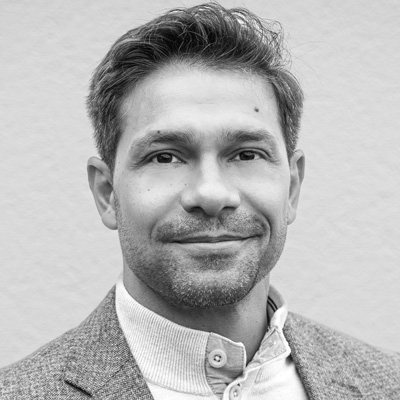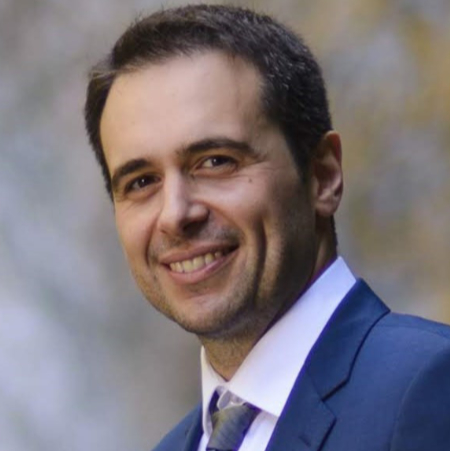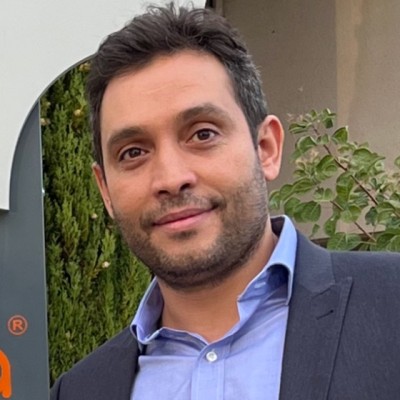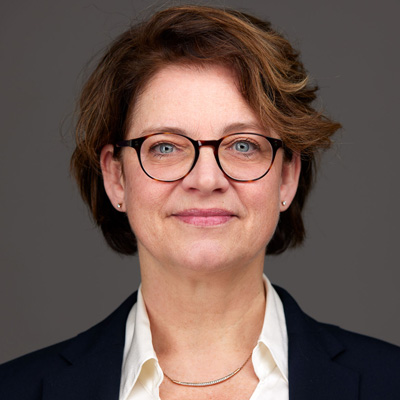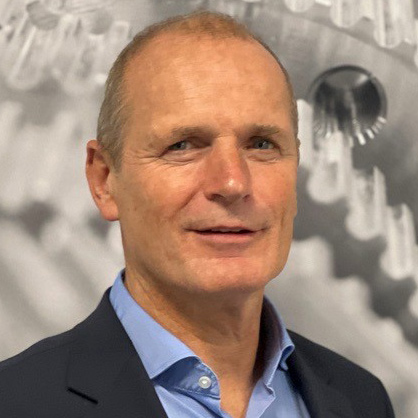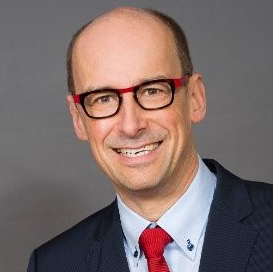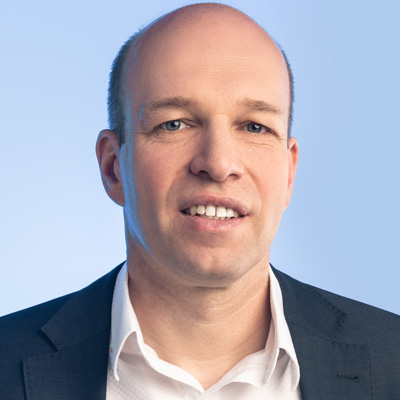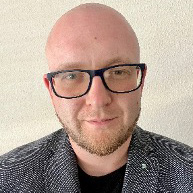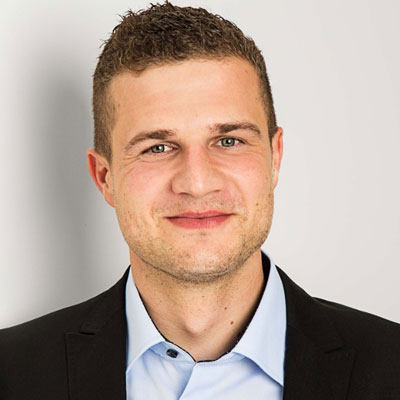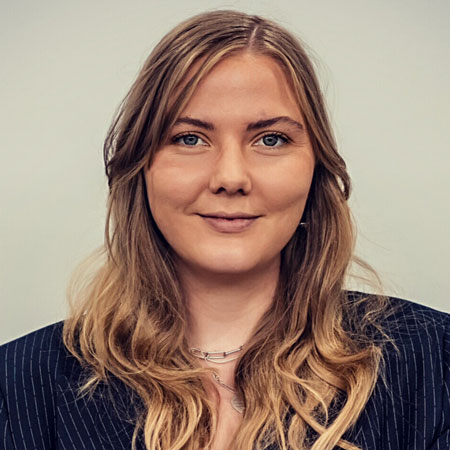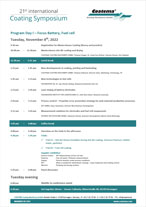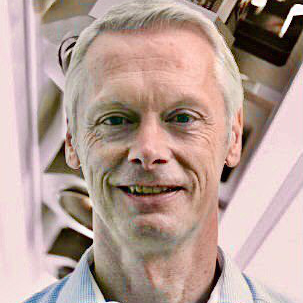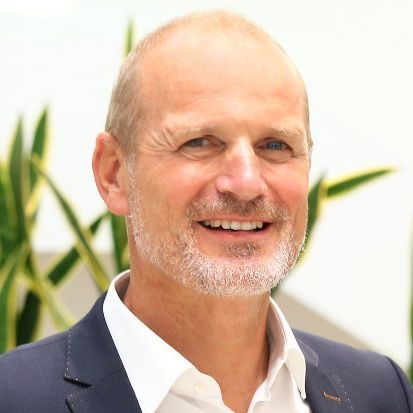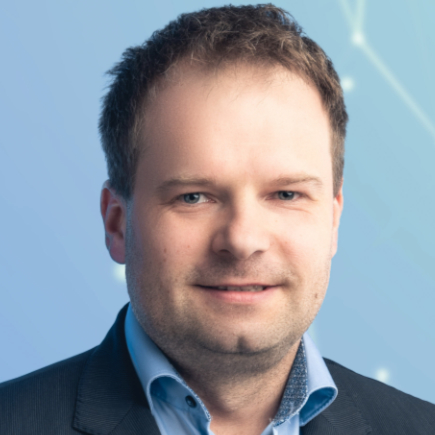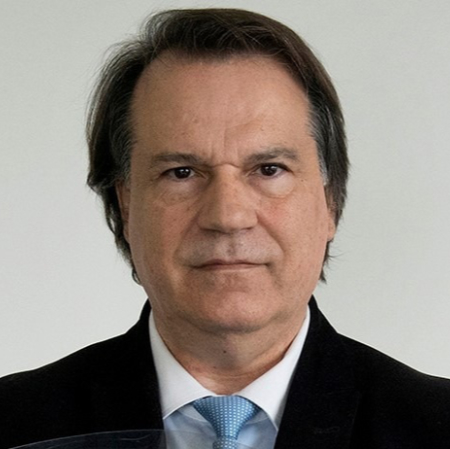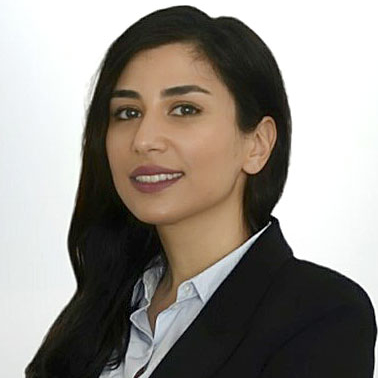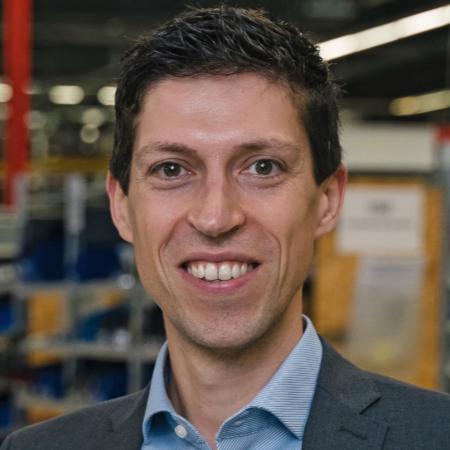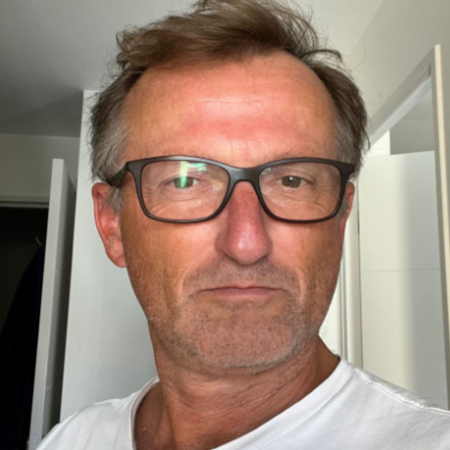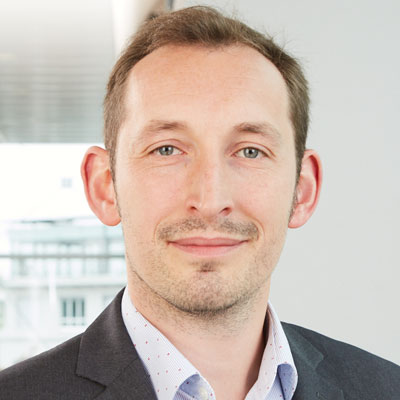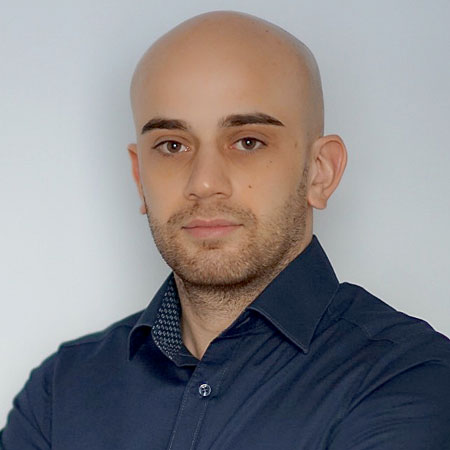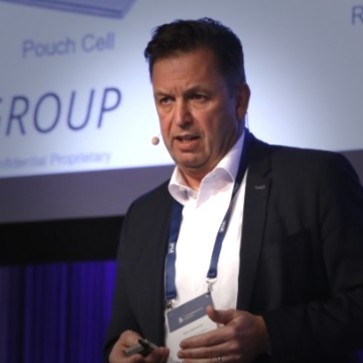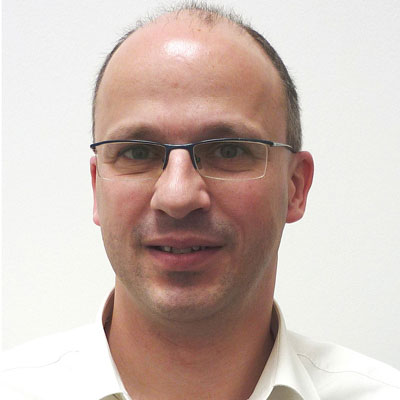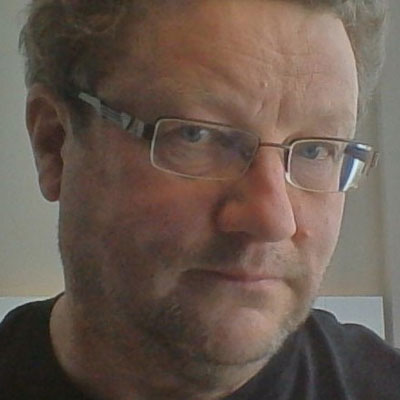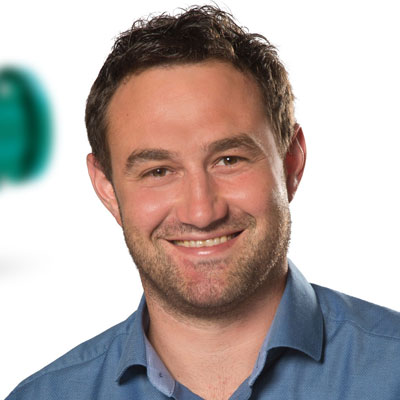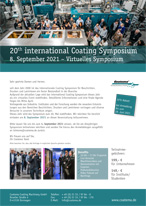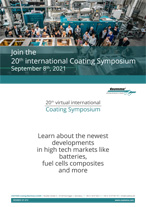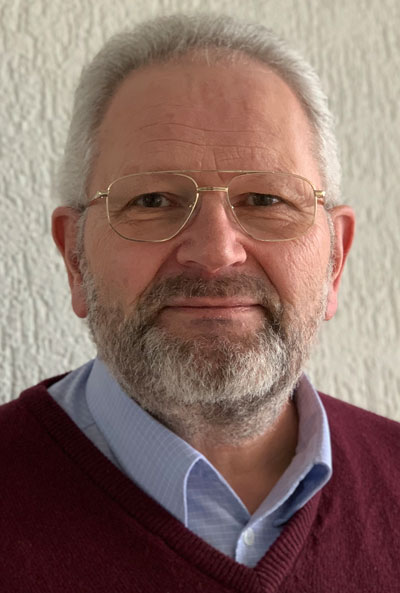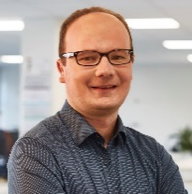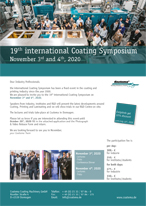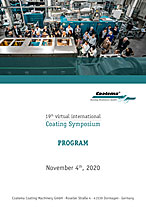Frühere Symposien
Im Jahr 2000 haben wir das erste Symposium zum Thema Beschichten veranstaltet. Da es von Beginn an größten Anklang gefunden hat, haben wir seitdem fast im jährlichen Turnuns ein Symposium für unsere Partner und Kunden veranstaltet.Hier sehen Sie eine Zusammenfassung der Vortragsreihen der bisher stattgefundenen Symposien.
23. Symposium im Jahr 2024
Programm
Program Day I – Coating technologies – what is the next thing?
Tuesday, November 26th, 2024
| 9.30 am |
Registration for short course | |
| 10.00 am – 12.15 pm |
Short course – Basics of slot die coating and drying COATEMA COATING MACHINERY GMBH, Kira Grefkes – Manager R&D centre, Harmen Rooms – Manager R&D |
|
| 12.15 pm – 1.00 pm | Lunch break | |
| 1.00 am – 1.15 pm |
Introduction Coatema |
|
| 1.15 am – 1.45 pm |
The Role of Basis Weight in Electrode Coating |
|
| 1.45 pm – 2.15 pm |
Fully automated giga fab for OPV solar cells |
|
| 2.15 pm – 2.45 pm |
Towards industrialization of organic photovoltaic cells and modules for indoor applications |
|
| 2.45 pm – 3.15 pm | 2D Inline thickness measurement with a polarization camera INSTITUT FÜR FERTIGUNGSTECHNIK UND PHOTONISCHE TECHNOLOGIEN, TU Wien, Ferdinand Bammer |
|
| 3.15 pm – 3.45 pm |
Spatial ALD development R2R |
|
| 3.45 pm – 4.00 pm | Coffee break | |
| 4.00 pm – 4.30 pm | Mastering materials behaviour – Characterisation of interfaces to optimise product MATERIALSXPERTISE, Netherlands, Dr. Mariëlle Wouters – CEO |
|
| 4.30 pm – 5.00 pm | Non-contact measurement of sheet resistance of conductive layers on R2R applications NAGY INSTRUMENTS, Germany, Tim Emmerich – Technical Sales |
|
| 5.00 pm – 5.15 pm | Overview on the trials in the afternoon | |
| 5.15 pm – 6.00 pm |
Trials:
|
|
|
Supplier exhibition
C2 Coating & Converting: Specialized Magazine for the Coating and Converting Industry
|
||
| 6.00 pm – 6.15 pm | Panel discussion | |
| Tuesday evening | ||
| 6.30 pm | Get-together dinner |
|
Program Day II – Coating technologies – what is the next thing?
Wednesday, November 27th, 2024
| 9.00 am |
Welcome COATEMA COATING MACHINERY GMBH, Thomas Kolbusch – Director Sales, Marketing, Technology, VP |
|
| 9.15 am – 9.45 am |
Laser drying of battery anodes |
|
| 9.45 am – 10.15 am | How to save energy through data EW-TEC, Germany, Michael Mohr – IIoT Engineer |
|
| 10.15 am – 10.45 am |
Coating Control – intelligent networked edge alignment for renewable energy |
|
| 10.45 am – 11.00 am | Coffee break | |
| 11.00 am – 11.30 am | Digital CCM fabrication for fuel cells & electrolyzers HELIOSONIC – ALTANA AG, Germany, Dr. Frank Walter – Head of consumables & application development Heliosonic |
|
| 11.30 am – 12.00 pm |
Hyperspectral cameras for quality control |
|
| 12.00 pm – 12.30 pm |
Surface inspection and measurement solutions for web material used in fuel cells |
|
| 12.30 pm – 1.30 pm | Lunch break | |
| 1.30 pm – 2.00 pm |
Optimal design of coating and laminating machines to reduce energy consumption and CO2 footprint |
|
| 2.00 pm – 2.30 pm | Overview on Coatema R&D projects COATEMA COATING MACHINERY GMBH, Harmen Rooms, Manager R&D |
|
| 2.30 pm – 3.30 pm |
Trials: |
|
|
Supplier exhibition
C2 Coating & Converting: Specialized Magazine for the Coating and Converting Industry
|
||
| 3.30 pm – 3.45 pm |
Q&A and closing remarks |
Sprecher
|
|
Leon Onorio – Manager - Sales & Business Development, Scantech Germany GmbH
Leon Onorio started his career in the production, is a trained automotive mechatronics technician [AUDI/VW] and a studied engineer [B.Eng]. Since mid-2017, he has specialized in QA of R2R battery electrode production, where he began a part-time M.Sc. in Technology & Innovation Management at AKAD University in Stuttgart end of 2019, with the aim to operate in the interface of tech & economics. His Thesis focused on investigating the interdependencies between the process & product parameters of R2R electrode production and developing a methodology for identifying and evaluating trends & technologies for solving strategic decision-making problems. He currently holds the position as Manager in S&B Development at SCANTECH Germany, where he is responsible for the growth of the energy market for QA solutions as well as tech advancements of their products in the field on a global level.
|
|
|
|
Evangelos Mekeridis – CTO, OET (Organic Electronic Technologies P.C.)
Mr. Evangelos Mekeridis is the CTO of Organic Electronic Technologies P.C. He joined OET in 2013 as a Researcher. Current research interests as OET’s CTO are the development and optimization of large-scale production of Organic Photovoltaics (OPVs) by printing processes, manufacturing of prototype OPV, PPV, OLED devices and Sensors with Roll-to-Roll and Sheet-to-Sheet processes, materials optimization & testing, encapsulation, development of laser processes for OE nano-materials patterning, characterization & Quality Control. Holding 7 patents and 14 publications in international journals and more than 40 conferences related to OPVs, PPVs, Laser Patterning, Coatings, Nanomaterials, Electrochemistry and Corrosion protection. Mr. Mekeridis has participated in more than 20 EU (FP6, FP7, H2020, HE) and National (NSRF) funded R&D projects related to the development of materials, techniques for printing and optimization of organic electronics processes. |
|
|
|
Sadok Ben Dkhil – CTO, Dracula Technologies
SADOK BEN DKHIL received the Ph.D. degree in physics from Claude Bernard University, Lyon, France, in 2012. He is currently the CTO of the French startup Dracula Technologies specialized in OPV by inkjet printing for indoor application. After his Ph.D. degree, he conducted his postdoctoral research on organic photovoltaic with CNRS, CINaM, France, and Merck Group, Southampton, England, from 2012 to 2016, working on the optimization of the performance and stability of organic solar cells. His research interest includes the development of new indoor organic photovoltaic devices by inkjet printing technique.
|
|
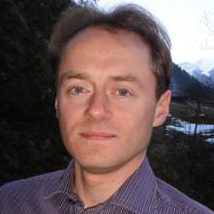 |
Ferdinand Bammer, Institut für Fertigungstechnik und photonische Technologien, TU Wien
Ferdinand Bammer is a Senior Scientist at the Institute for Production Engineering and Photonic Technologies of the Vienna University of Technology. His research is on fast imaging-ellipsometry for quality control of thin films in production lines in e.g. beverage-, pharmacy-, and steel-industry.
|
|
|
|
Erik Kremers, CTO / System Architect, SALD B.V
After studying Mechatronics in 1997 Erik became involved in various High Tech Systemprojects in the semiconductor market and industrial printing developments. Here hegained a lot of experience with high accuracy positioning systems and fast industrialrobots. In 2012 Erik switched as a system architect to SoLayTec. In addition to thetechnical challenges as CTO, he is gradually more and more involved with organizational and business challenges, which has led to the establishment of SALD.
|
|
|
|
Dr. Mariëlle Wouters – CEO, MaterialsXpertise, Mariëlle Wouters is the owner of MaterialsXpertise in the Netherlands. She is a materials technologist by heart. After her study at Eindhoven University of Technology she was invited to perform her PhD project at the same university. In the year 2000 she graduated and continued her career at TNO where she was a scientist and project manager of various types of projects. From very small projects up to coordination of a European Project with 8 SMEs. In the year 2016 she started MaterialsXpertise. From that moment on she helps companies in understanding the changes in behaviour of formulations and/or processes in relation to the ultimate performance of the end product. In this contribution Mariëlle will take you by the hand along a typical project relevant to formulations to be used in a slot die coating process. |
|
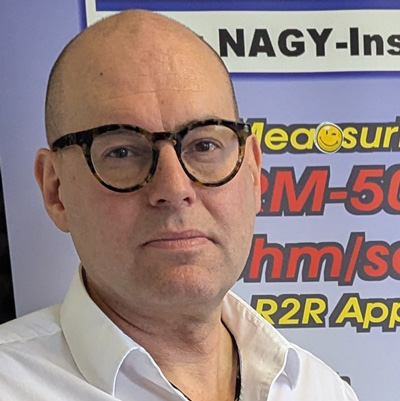 |
Tim Emmerich – Technical Sales, Nagy Instruments
Tim Emmerich has been part of the NAGY team since the mid-90s. Initially, he worked in production, later in order picking and, after completing an economics education, he was in charge of purchasing. He has been responsible for technical sales since 2000 and has been one of the managing directors since 2024.
|
|
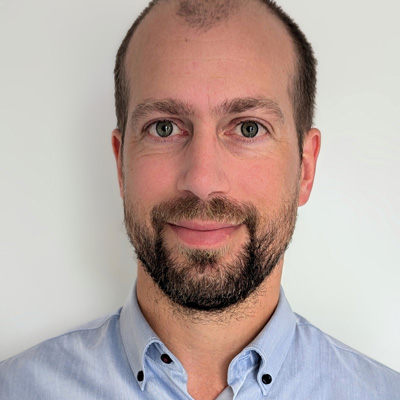 |
Michael Mohr – IIoT Engineer, EW-Tec Industrieservice & Anlagentechnik GmbH Professional Experience:
Bundeswehr, 2016 – 2019
NOFFZ Technologies GmbH, 2021 – 2022
EW-Tec Industrieservice & Anlagentechnik GmbH, 2022 – 2023
EW-Tec Industrieservice & Anlagentechnik GmbH, 2023 – Present Education:
Key Qualifications:
|
|
|
|
Kai Prahl – Area Sales Manager – New Energy, BST GMBH
|
|
|
|
Dr. Frank Walter – Head of consumables & application development, Heliosonic
Education: Polymer Chemistry, University of Mainz,Germany Professional stations: 2014 – Altana
|
|
|
|
André Wahl – Technical Sales Director, KETMarket GmbH
André Wahl studied Applied Physics at the University of Applied Sciences in Zwickau and began his career at Southwall Europe GmbH in Grossroehrsdorf in 2001. Southwall Europe GmbH specializes in sputter coating flexible substrates for applications in the automotive, architectural, flexible electronics, and medical industries. André held various roles in Process Engineering and R&D before becoming Site Manager in 2015. In this role, he managed the Grossroehrsdorf site with around 100 employees and led a site in Los Angeles with approximately 50 employees for three years. In early 2023, André transitioned to Linxens Germany GmbH as Operations Manager, where he oversaw the production of RFID antennas. In October 2023, André joined KETMarket GmbH as Technical Sales Director. In this position, he serves as an industry contact for technology consulting and supports activities related to the Innovative Marketplace. He is also involved in the EU projects HyperImage and Convert2Green, focusing on the exploitation of technical results.
|
|
|
|
Alexander Kabardiadi-Virkovski – Group Lead, Fraunhofer IWS
Alexander Kabardiadi-Virkovski, born on July 11, 1989, began his bachelor's studies at the Westsächsische Hochschule Zwickau in 2009, graduating in 2013 with a thesis on "Design and Implementation of Analysis Software for Hartmann-Shack Diagrams." He continued with a master's degree in nanotechnology while working as a research associate, completing his thesis on "Rapid Alternative Method for Wavefront Analysis in Photolithography Systems" in 2015. Since 2015, he has been a research associate at Fraunhofer IWS, AZOM department. In 2020, he became the deputy group leader, focusing on numerical methods in optical metrology and applied image processing. Also in 2020, he began his doctoral studies through a cooperative program between Friedrich Schiller University Jena and Westsächsische Hochschule Zwickau, focusing on AI methods in optical imaging. Since 2024, he has been leading the group for optical surface metrology.
|
|
|
|
Johannes Schuler – Business Development Optical Inline Metrology, KEYENCE DEUTSCHLAND GMBH 2020 – today Business Development „New Energy” - Keyence Deutschland GmbH 2017 – 2020 Sales Engineer for Optical Measurement Technology - Keyence Deutschland GmbH 2013 – 2017 Master study „Industrial Engineering” - University of Applied Sciences Nordhausen 2010 – 2013 Dual Bachelor studies „Business Administration” – Leibniz University of Applied Sciences Hannover in cooperation with Robert BOSCH GmbH |
|
|
|
|
Thomas Kolbusch – Vice President, COATEMA COATING MACHINERY GMBH
He is member of the board of the OE-A (Organic Electronic Association) in Germany, a global association for printed electronics. He serves in the advisory board of Fraunhofer ITA institute. He served as member of the board of COPT.NRW, a local association in Germany, as well as exhibition chair of the LOPEC in Munich for five years. Thomas is active in the field of fuel cells, batteries, printed electronics, photovoltaics and medical applications. He organizes the international Coatema Coating Symposium for over 19 years and represents Coatema in a number of public funded German and European projects.Thomas Kolbusch studied Business Economics at the Niederrhein University of Applied Sciences and got his degree as business economist in 1997. He started his career at 3M, Germany. Since 1999 he is working for Coatema Coating Machinery in different positions.
|
|
|
Kira Grefkes – R&D Project Manager, COATEMA COATING MACHINERY GMBH
Kira Stephan studied Textile Technology at the „Hochschule Niederrhein” University of Applied Sciences in Mönchengladbach. After a practical semester at Coatema in 2020 she did her bachelor thesis with focus on printed electronics onto textiles in 2021. After that she joined Coatema as R&D Project Manager coordinating national and European funded projects related to upscaling of roll-to-roll and roll-to-sheet processes for different subjects like sustainable packaging, battery and smart textiles. In almost three years now, she has gained a high expertise in process planning, development and practical implementation of various printing and coating methods as well as laminating.
|
|
|
|
Harmen Rooms – Manager R&D, COATEMA COATING MACHINERY GMBH
|
Abstrakt
|
Leon Onorio
|
The role of basis weight in electrode coating
The presentation will sensitize you to the role of Basis Weight as an important process and product parameter. A uniform Basis Weight is crucial for achieving homogeneous coatings on electrodes which is essential for the electrochemical stability and reliability of batteries. Variations in Basis Weight can lead to inconsistent performance, resulting in reduced efficiency and lifespan of the battery cells. Effective quality assurance not only enhances product quality but also significantly improves production efficiency. By identifying inhomogeneities early in the coating process, resources can be saved, and costs minimized. Basis Weight inline measuring systems provide real-time monitoring of electrode coatings, allowing for immediate corrections to any deviations from quality standards. This proactive approach reduces waste and enhances throughput, ultimately leading to more affordable battery solutions that meet the increasing demand for sustainable energy technologies.
|
|
| Evangelos Mekeridis |
Fully automated giga fab for OPV solar cells
The renewable energy landscape is transforming with the rise of automated mass-scale facilities for next-generation Organic Photovoltaic (OPV) solar cells. OPVs utilize organic compounds to convert sunlight into electricity, marking a breakthrough in sustainable energy technology by offering lightweight, flexible, and versatile solutions.
This presentation showcases OET’s initiative to advance OPV technology from pilot production to a full-scale Giga Fab, utilizing advanced Roll-to-Roll (R2R) manufacturing and Automated Assembly technologies. OET’s fully automated facility aims to establish a high-capacity industrial line for OPV production, paving the way for wide-ranging applications in building facades, greenhouse structures, and electric vehicle (EV) surfaces. Prioritizing efficiency, scalability, and environmental responsibility, this initiative demonstrates the potential of OPVs as an eco-friendly energy alternative that seamlessly integrates into diverse environments. As global demand for sustainable energy solutions rises, the automated Giga Fab positions OPV technology at the forefront of renewable energy innovation, enabling a rapid transition from research to mass-market implementation.
|
|
|
Sadok Ben Dkhil |
Towards industrialization of organic photovoltaic cells and modules for indoor applications
The need of scalable fabrication of high-efficiency organic photovoltaic cells and modules has gradually emerged. In particular, indoor organic photovoltaics (IOPV) constitutes an attractive energy harvesting solution to power IoT devices, given its deployability, reliability, and power density. A substantial portion of the billions of new IoT devices that will be installed in the coming years are expected to be located inside buildings. Such devices like environmental sensors, can have several shapes and sizes, hence the need to develop custom-made conformable photovoltaic devices to facilitate their integration into the final product. In this context, inkjet printing has become a very attracted printing technology for large-scale printed flexible cells and modules with freedom of shapes and designs.
Herein we demonstrate the challenge to go from lab-scale to industrial scale to achieve highly efficient fully inkjet printed IOPV cells and module. To prove the great advantage of inkjet printing as a digital technology allowing freedom of forms and designs, particular OPV modules with different shapes are demonstrated and integrated into different IoT devices to operate autonomously without using batteries or connections to the grid to ensure sufficient flexibility in their placement.
|
|
|
Ferdinand Bammer |
2D Inline thickness measurement with a polarization camera
We present for quality control in R2R-production an inline-imaging-ellipsometer based on a polarization camera. The system, without any moving parts, can be used for full quality control of thin layers with thickness up to 500nm on foil-widths up to 2m.
Typical problems like foil-vibrations and backside-reflection are solved via a measurement directly on a roll, which yields a stable image of a line along the roll, with a length equal to the full width of the foil.
Due to the foil movement a complete 2D-view of the thickness-distribution can be obtained in-line and in-time. The system was tested with different layer materials, e.g. SiO2, P3HT, PEDOT and Al2O3, all on PET-foils.
|
|
|
Erik Kremers |
Fully automated giga fab for OPV solar cells
Spatial Atomic Layer Deposition (Spatial ALD) is an advanced thin film deposition technique that offers several advantages over traditional ALD processes. Significantly faster processing times and higher throughput, making it suitable for large-scale manufacturing with low cost of ownership. Despite its faster deposition rates, it maintains precise control over film thickness at the atomic scale, ensuring high uniformity and quality of thin films.
Spatial ALD is highly scalable and adaptable to various substrate geometries, allowing for efficient coating of both flat and complex surfaces. These advantages make spatial ALD a promising technology for a wide range of applications.
This high-speed roll-to-roll process opens new possibilities for the fast, cost-effective deposition of thin films in industries such as photovoltaics, and flexible electronics. These innovations make spatial ALD a promising technology for a wide range of applications, offering both rapid processing and exceptional film quality.
The presentation during this symposium will show our solutions, explain the benefits, and show that processes by Spatial LD are available at high speeds.
|
|
|
Dr. Mariëlle Wouters |
Mastering materials behaviour – Characterisation of interfaces to optimise product behaviour
Coating a substrate can be challenging as three phases are in contact that change continuously from application to final properties after curing. The substrate to be coated has certain properties that affect the interaction with the liquid coating formulation that is applied. The applied liquid coating will be converted to a solid coating and changes in properties during coating, and the interface between substrate and coating needs to develop to ensure the desired adhesive properties.
In this contribution we explain these phenomena based on small scale analyses towards an operating window that allows optimisation of formulations and making choices for certain materials or processed to obtain the most optimal product in an efficient manner.
|
|
|
Tim Emmerich |
Non-contact measurement of sheet resistance of conductive layers on R2R applications
Continuous measurement of the quality of conductive coatings is essential for the function of products. Measuring without having to touch and stop the product offers a decisive advantage and allows the layers to be produced homogeneously and consistent quality to be documented. NAGY has been supporting machine manufacturers and coaters for over 30 years.
|
|
|
Michael Mohr |
How to save energy through data
Energy consumption is a critical issue in our global economy, with industries consuming a significant portion of available resources. Through the effective use of data, energy efficiency can be significantly improved. This presentation explores global energy consumption trends, highlights the role of digitalization in optimizing energy use. It also highlights strategies on how to start. Practical applications, including energy management systems and real-world case studies, demonstrate how data-driven approaches can lead to significant energy savings, supporting both economic and environmental goals.
|
|
|
Kai Prahl |
Coating Control – intelligent networked edge alignment for renewable energy
The coating process is one of the most important and most sensitive production processes in the fuel cell, battery- and solar industry. In this process step, the quality, and the production efficiency in the manufacture of a fuel cell or a battery are decided right at the beginning regarding the chemistry used as well as the coating quality and its geometric alignment. These challenges are very similar in both industries.
The battery industry a foil (copper or aluminum) is usually coated by a slot die (slurry). The coating process is either continuous or intermittent. Coating of the upper and lower side of the foil is done either on one side, in tandem or simultaneously and is then rewound after drying. The coating process in the Fuell Cell industry is slightly different. A carrier foil known as a "decal" is coated on a single side using a platinum catalyst or "electrode" using a slot die. Alternatively, the PEM can be directly coated on both sides. Subsequently, the web is dried within a convection oven and re-winded.
Coating control is a predictive inline process control strategy to avoid quality issues before they arise. It includes high precision web guiding systems networked with high performance vision technology to ensure an automatic alignment and the control of top to bottom layer positions.
Who we are
BST is a leading global provider of inline quality assurance systems and services for web material processing industries. We transfer our decades of experience from the printing and converting industry, to the emerging markets of the Organic & Printed Electronic, Fuel-Cell and Lithium-Ion Batterie industry.
Our mission is: less waste, higher quality, more time for production!
|
|
| Dr. Frank Walter |
Digital CCM fabrication for fuel cells
Hydrogen Economy, Printed Electronics, Electromobility. Those are HELIOSONICs focus areas in short. This year’s presentation at the Coatema Symposium will showcase our capabilities in PEM electrolyzer/fuel cell membranes, economic ways of realizing conductive paths and our vision for the application of our technology in the field.
|
|
|
André Wahl Alexander Kabardiadi-Virkovski |
Hyperspectral cameras for quality control
The hyperspectral camera aims to revolutionize quality control processes by developing a versatile, efficient, and cost-effective spectral imaging platform. The EU project HyperImage has this topic as target. Designed for both long-range and short-range applications, the project focuses on advancing photonic components and high-performance spectral imaging sensors, developing tunable optics, and implementing modular designs for automated material analysis.
A key aspect of HyperImage includes integrating lightweight spectral imaging modules into robotic and vehicle platforms, supported by a cloud-based image analysis system. By validating and deploying this technology across diverse industrial use cases, the project seeks to establish commercialization routes and value chains within Europe for spectral imaging systems and will help to establish this technology for quality control.
The technology’s wide-ranging industrial applications include semiconductors, pharmaceuticals, agriculture, medical imaging, robotics, environmental monitoring, infrastructure surveillance, and remote sensing.
The platform offers significant benefits such as increased accuracy, improved efficiency, and enhanced product development and process control, surpassing the capabilities of existing technologies. Additionally, it ensures safety through non-destructive testing and improves healthcare outcomes with more precise diagnostics and treatment planning. With a projected market potential of up to 36 billion USD by 2026 and a CAGR exceeding 10%, HyperImage positions spectral imaging technology as a key driver for advancing quality, reducing costs, and promoting sustainability across various industries.
|
|
|
Johannes Schuler
|
Surface inspection and measurement solutions for web material used in fuel cells
Within the battery and fuel cell production quality inspection solutions are the key to ensure save and long-lasting final products. In a variety of different non-contact technologies optical measurement systems are a cost efficient and space saving alternative. For this years Symposium Keyence will present three newly released systems for inline optical measurement. We are also very glad to be a part of the live demonstration.
|
|
|
Andrea Glawe
|
Optimal design of coating and laminating machines to reduce energy consumption and CO2 footprint
The best solutions are developed in close cooperation with customers who can optimally describe the end product to be produced. The result is forward-looking machine solutions for maximum productivity, reliability, investment security and sustainability.
We strive to realize the truly best individual solutions for the application, with the aim of optimizing the resource-saving design of new customized machine concepts and efficient and reliable coating solutions in terms of reducing energy consumption, resources and CO2 footprint.
Retrofitting existing machines can also optimize and improve the energy and process-related performance of the coating system. In addition to the machine, training is also important for the optimal operation of the equipment leading to improve machine performance. The presentation will show solutions and trends for sustainable machine concepts and methods for calculating the machine footprint.
|
|
|
Harmen Rooms
|
Overview of Coatema R&D projects
|
22. Symposium im Jahr 2023
Programm
Program Day I – Renewable energies for Net Zero by 2025
Tuesday, November 7th, 2023
| 9.30 am |
Registration for short course | |
| 10.00 am – 12.15 pm |
Slot die coating of low viscosity inks for thin layers COATEMA COATING MACHINERY GMBH, Thomas Exlager, Dr. Pegah Shakeri, Kira Grefkes, Harmen Rooms |
|
| 12.15 pm – 1.00 pm | Lunch break | |
| 1.00 am – 1.15 pm |
Introduction Coatema |
|
| 1.15 am – 1.45 pm | Spatial Atomic Layer Deposition (ALD) for batteries, fuel cells, packaging and solar SALD B.V., Netherlands, Erik Kremers – CTO |
|
| 1.45 pm – 2.15 pm |
OPV development to the Giga Fab (Flex2Energy) |
|
| 2.15 pm – 2.30 pm |
Sustainable pumps for battery production |
|
| 2.30 pm – 3.00 pm | Quality control systems inline for fuel cells DR. SCHENK GMBH, Germany, Martin Lehmköster – Sales Manager |
|
| 3.00 pm – 3.30 pm | Fuelcell2Print: Digital material deposition for catalyst coated membrane production HELIOSONIC – ALTANA AG, Germany, Dr. Frank Walter – Head of consumables & application development Heliosonic |
|
| 3.30 pm – 4.00 pm | Coffee break | |
| 4.00 pm – 4.30 pm | Coating Control – intelligent networked edge alignment for renewable energy BST GMBH, Germany, Kai Prahl – Area Sales Manager – New Energy |
|
| 4.30 pm – 5.00 pm | Open innovation in Europe to support green transition of SME and industry KET MARKET, Germany, Dr. John Fahlteich – Managing Director |
|
| 5.00 pm – 5.15 pm | Overview on the trials in the afternoon | |
| 5.15 pm – 6.00 pm |
Trials:
Heliosonic: Laser to print fuel cells
|
|
| 6.00 pm – 6.15 pm | Panel discussion | |
| Tuesday evening | ||
| 6.30 pm | Shuttle to conference event | |
| 6.45 pm | Get-together Dinner – Venue: Culinario, Römerstraße 40, 41539 Dormagen | |
Program Day II – Renewable energies for Net Zero by 2025
Wednesday, November 8th, 2023
| 9.00 am |
Welcome COATEMA COATING MACHINERY GMBH, Thomas Kolbusch – Director Sales, Marketing, Technology, VP |
|
| 9.15 am – 9.45 am |
The need for OPV and Perovskite products made in Europe for solar, batteries and fuel cells ARISTOTLE UNIVERSITY OF THESSALONIKI, Greece, Prof. Stergios Logothetidis – Lab for Thin Films-Nanobiomaterials-Nanosystems & Nanometrology (LTFN) |
|
| 9.45 am – 10.15 am | Simulation – Digital twin in coating industry COATEMA COATING MACHINERY GMBH, Dr. Pegah Shakeri – R&D Manager |
|
| 10.15 am – 10.45 am | The role of Slitting Technology for reaching Net Zero by 2025 – challenges & chances DIENES WERKE FÜR MASCHINENTEILE GMBH & CO. KG, Germany, Julian Supe-Dienes – Sales Director |
|
| 10.45 am – 11.00 am | Coffee break | |
| 11.00 am – 11.30 am | High efficient diode lasers for drying applications of electrodes and beyond LASERLINE GMBH, Germany, Dr.-Ing. Simon Britten – Technology Manager / New Business Development |
|
| 11.30 am – 12.00 pm |
Inline quality control system for organic electronics |
|
| 12.00 pm – 12.30 pm |
Surface inspection and measurement solutions for web material used in fuel cells |
|
| 12.30 pm – 1.30 pm | Lunch break | |
| 1.30 pm – 2.00 pm | Overview on Coatema R&D projects COATEMA COATING MACHINERY GMBH, Harmen Rooms, Manager R&D |
|
| 2.00 pm – 2.30 pm | Process optimization enabled by Digital Twins REAL-TIME SYSTEMS GMBH, Germany, Jürgen Kreis, Director Business Development Solutions |
|
| 2.30 pm – 3.00 pm |
Trials: Heliosonic: Laser to print fuel cells
|
|
| 3.00 pm – 3.30 pm | Q&A and closing remarks |
Sprecher
|
|
Erik Kremers, CTO / System Architect
After studying Mechatronics in 1997 Erik became involved in various High Tech Systemprojects in the semiconductor market and industrial printing developments. Here hegained a lot of experience with high accuracy positioning systems and fast industrialrobots. In 2012 Erik switched as a system architect to SoLayTec. In addition to thetechnical challenges as CTO, he is gradually more and more involved with organizational and business challenges, which has led to the establishment of SALD. |
|
|
|
Evangelos Mekeridis – CTO, OET (Organic Electronic Technologies P.C.)
Mr. Evangelos Mekeridis is the CTO of Organic Electronic Technologies P.C. He joined OET in 2013 as a Researcher. Current research interests as OET’s CTO are the development and optimization of large-scale production of Organic Photovoltaics (OPVs) by printing processes, manufacturing of prototype OPV, PPV, OLED devices and Sensors with Roll-to-Roll and Sheet-to-Sheet processes, materials optimization & testing, encapsulation, development of laser processes for OE nano-materials patterning, characterization & Quality Control.
Holding 7 patents and 14 publications in international journals and more than 40 conferences related to OPVs, PPVs, Laser Patterning, Coatings, Nanomaterials, Electrochemistry and Corrosion protection. Mr Mekeridis has participated in more than 20 EU (FP6, FP7, H2020, HE) and National (NSRF) funded R&D projects related to the development of materials, techniques for printing and optimization of organic electronics processes. |
|
|
|
Martin Lehmköster – Sales Manager, Dr. Schenk GmbH
After his education in vocational education degree in banking & finance, Martin Lehmkoester has focused his business career since more than twentyone years in sales activities relating to measurement technologies.
|
|
|
|
Dr. Frank Walter – Head of consumables & application development, Heliosonic
Education: Polymer Chemistry, University of Mainz,Germany Professional stations: 2014 – Altana
|
|
|
|
Kai Prahl – Area Sales Manager – New Energy, BST GMBH
|
|
|
|
Dr. John Fahlteich – Managing Director, KET Market
Dr. John Fahlteich, born 1981, graduated from the University of Leipzig with a diploma in physics in 2005. In 2010, he earned a PhD at the Technical University of Chemnitz with a thesis about thin film coating of permeation barriers. John has now 18 years of experience in Thin-Film and Nanotechnology, in particular Roll-to-Roll Coating on Plastic Web. Until September 2022, John was leader of an 18-people Research Group at the Fraunhofer Institute for Organic Electronics, Electron Beam and Plasma Technology FEP in Dresden, Germany. In 2022, he started his own business – KETMarket – with the aim to create a Digital Open Innovation Marketplace and Single Entry Point to the European Open Innovation Ecosystems. Being a key partner in multiple Open Innovation Networks, John is well known both in research and in industrial communities shaping the European Open Innovation Ecosystem as Instrument to support SME and industry in realizing their new product and technology development faster.
|
|
|
|
|
Thomas Kolbusch, Vice President, COATEMA COATING MACHINERY GMBH
He is member of the board of the OE-A (Organic Electronic Association) in Germany, a global association for printed electronics. He serves in the advisory board of Fraunhofer ITA institute. He served as member of the board of COPT.NRW, a local association in Germany, as well as exhibition chair of the LOPEC in Munich for five years. Thomas is active in the field of fuel cells, batteries, printed electronics, photovoltaics and medical applications. He organizes the international Coatema Coating Symposium for over 19 years and represents Coatema in a number of public funded German and European projects.Thomas Kolbusch studied Business Economics at the Niederrhein University of Applied Sciences and got his degree as business economist in 1997. He started his career at 3M, Germany. Since 1999 he is working for Coatema Coating Machinery in different positions.
|
|
|
Prof. Stergios Logothetidis – ARISTOTLE UNIVERSITY OF THESSALONIKI,Lab for Thin Films-Nanobiomaterials-Nanosystems & Nanometrology (LTFN)
S. Logothetidis is an Em. Professor of Physics, Nanotechnology, Materials Science, Thin Films Technologies, Organic Electronics, Optics and Nanomedicine in the Aristotle University of Thessaloniki, Greece.
Prof. Logothetidis coordinated more than 80 european and National projects with more than 150M€, and in 2023 became the Coordinator of 2 new Flagship scientific and industrial Horizon Europe projects of great significance in the field of Energy, Flexible Printed Electronics and Nanotechnologies
|
|
|
|
Dr. Pegah Shakeri – R&D Manager, COATEMA COATING MACHINERY GMBH
Pegah Shakeri completed her PhD in physics with a focus on rheology and flow of complex fluids at the Max Planck Institute for Dynamics and Self-Organization. She joined Coatema coating machines GmbH in early 2023 in a dynamic role as R&D manager and scientist, bridging the gap between theoretical knowledge and practical applications. One of her key tasks is to supervise and manage several R&D projects, both at national and European level, in the fields of fuel cells, batteries, printed electronics and photovoltaics. As a scientist, her work revolves around the application of mathematical and numerical modelling. She uses cutting-edge techniques, particularly in the field of computational fluid dynamics, to simulate the complex processes of coating and drying. These simulations are invaluable tools for optimizing and fine-tuning the manufacturing processes in which Coatema specializes.
|
|
|
|
Julian Supe-Dienes – Managing Director, DIENES WERKE FÜR MASCHINENTEILE GMBH & CO. KG
2013 – 2020 B.Sc. & M.Sc. Industrial Engineering, RWTH Aachen University |
|
|
|
Dr.-Ing. Simon Britten – Technology Manager / New Business Development, LASERLINE GMBH
Dr.-Ing. Simon Britten worked from 2012 – 2018 as scientific researcher and team manager at the Fraunhofer Institute for Laser Technology in Aachen. He accomplished his PhD in applied lasers at the technical university in Aachen in 2017. Since 2018 he is working in the field new business development and technology management at Laserline, with a focus on heat treatment and laser drying applications.
|
|
|
|
|
Christophe Defranoux – R&D Marketing Manager, SEMILAB FÉLVEZETŐ FIZIKAI LABORATÓRIUM ZRT.
He has graduated from Paris University of Science in Optics and Materials, worked in SOPRA in the Spectroscopic Ellipsometry (SE) group from 1992 to 2008, leads the Application group during 10 years and joined Semilab in 2008 as SE Support manager. He is involved since 15 years in the Printed and Organics electronics applications in SEMILAB Group and is now R&D Marketing manager and part of the EU project team of SEMILAB.
|
|
|
Johannes Schuler, Business Development Optical Inline Metrology, KEYENCE DEUTSCHLAND GMBH
|
|
|
|
Harmen Rooms, Manager R&D, COATEMA COATING MACHINERY GMBH
|
|
|
|
Jürgen Kreis, Director Business Development Solutions, ARENDAR IT SECURITY
With his own consulting company MARU International Business Consulting he has been working as a consultant for medium-sized companies since 2010. Addressed topics include the development of international sales organizations (esp. for Asian and NAFTA markets), M&A projects, identification of new technologies and suppliers, restructuring and intercultural competence. Since spring 2021, he is supporting Arendar IT-Security GmbH, responsible for sales and marketing as well as business development. Since 2023, the former Arendar IT-Security became part of Real-Time Systems GmbH, a member of the congatec group. With this transition, Juergen has taken an active role within congatec as Director Business Development Solutions. |
|
|
|
Thomas Exlager, R&D Manager, COATEMA COATING MACHINERY GMBH
|
|
|
|
Kira Grefkes, R&D Project Manager, COATEMA COATING MACHINERY GMBH
Kira Stephan studied Textile Technology at the „Hochschule Niederrhein” University of Applied Sciences in Mönchengladbach. After a practical semester at Coatema in 2020 she did her bachelor thesis with focus on printed electronics onto textiles in 2021. After that she joined Coatema as R&D Project Manager coordinating national and European funded projects related to upscaling of roll-to-roll and roll-to-sheet processes for different subjects like sustainable packaging, battery and smart textiles. In almost three years now, she has gained a high expertise in process planning, development and practical implementation of various printing and coating methods as well as laminating. |
Abstrakt
|
Erik Kremers
|
Spatial Atomic Layer Deposition (ALD) for batteries, fuel cells, packaging and solar
Can you improve the world with a very thin layer, the size of one atom?
Imagine the world's highest-quality nanotechnology finding its way into everyday applications. The lifespan of batteries is increasing, charging becomes faster, and electrolysers for hydrogen can be produced much cheaper and greener. Improving these products has a major impact on the energy transition. This nano technology has been successfully applied in the high-quality semiconductor industry since the eighties. We want it to find its way into everyday applications, on a gigantic scale. And we, SALD, a machine and system builder from Eindhoven, have tackled this problem. We have embraced the technology and are the first in the world to develop machines and systems that make this accessible for much larger surfaces, and at a low cost. Our patented machines and systems have been implemented at leading institutes and companies around the world. There the benefits of our technology are recognized and publicized. We conduct feasibility studies with global technology leaders to validate our technology and later integrate it into their production lines. We are ready for the large-scale deployment of our production machines, which will serve solar cells, packaging, medicines, batteries, and the automotive industry. This step will lead to significant sales growth, both through machine sales and the supply of raw materials. In this way, together with our customers, we contribute to making our planet more sustainable.
|
|
| Evangelos Mekeridis |
OPV development to the Giga Fab (Flex2Energy)
In the domain of renewable energy, the journey from OPV development to the realization of a Giga Fab is an exciting endeavor that holds the promise of revolutionizing the energy landscape. Organic Photovoltaics (OPVs) play a pivotal role in this transition. OET, a pioneering company in the field, is leading the charge in OPV technology, representing a significant leap forward from traditional manufacturing practices. At the heart of this presentation lies the Flex2Energy project. The project's primary goal is to take OPV technology to the industrial level. It aims to establish an Automated Roll-to-Roll (R2R) Manufacturing Line for OPVs, featuring R2R Printing & Automated Assembly Machines. Robust in-line metrologies for quality control, complemented by industry 4.0 concepts, form the core of this endeavor, ensuring that the path from OPV development to the Giga Fab is not only transformative but also sustainable and widely embraced.
|
|
| Werner Volk |
MEA production equipment
OPTIMA is known as a well-established machine builder for the packaging industry.
|
|
| Martin Lehmköster |
Quality control systems inline for fuel cells
Dr. Schenk has been manufacturing inspection systems with a focus on web products since 1985. For the inspection of fuel cells, 3 inspection tasks can be performed in one system: Detect local defects such as pinholes and scratches with positional accuracy, monitor measurement tasks such as coating widths and material proberties such as roughness and homogeneity. All this is ensured by the in-house development and production of high-performance smart line scan cameras, LEDs and software.
|
|
| Dr. Frank Walter |
Fuelcell2Print: Digital material deposition for catalyst coated membrane production
Printing as a „non-all-over” coating process typically comes into play when designs are complex, like for multimaterial „coatings” or when material waste by i.e. overspray is to be avoided.
|
|
| Kai Prahl |
Coating Control – intelligent networked edge alignment for renewable energy
The coating process is one of the most important and most sensitive production processes in the fuel cell and battery industry. In this process step, the quality, and the production efficiency in the manufacture of a fuel cell or a battery are decided right at the beginning regarding the chemistry used as well as the coating quality and its geometric alignment. These challenges are very similar in both industries.
|
|
| Dr. John Fahlteich |
Open innovation in Europe to support green transition of SME and industry
European Commission has invested 300 Million Euro to establish 28 thematic Open Innovation Networks which support companies in developing, testing and upscaling of advanced materials for novel, sustainable processes and products. Each of the networks targets a specific key market segment in Europe and provides a unique set of combined expertise, technical facilities and R&D services, which can be accessed through a single point of contact. Small and medium enterprises gain the opportunity to receive discounted access to these facilities through Open Calls for Pilot Projects worth up to 100.000 € and beyond.
This talk will review the landscape of these Open Innovation Networks with a focus on coatings, printing and lamination technologies, as well as eco-friendly materials, sustainable plastics and smart and digital solutions. Currently available open calls for pilot cases are reviewed. Success stories illustrate the added value of the innovation networks to the coating industry. KETMarket unites the facilities and services of these Networks into one technology marketplaces and is fully qualified access point to these networks.
|
|
| Prof. Stergios Logothetidis |
The need for OPV and Perovskite products made in Europe for solar, batteries and fuel cells |
|
| Dr. Pegah Shakeri |
Simulation – Digital twin in coating industry
Digital twins, virtual replicas of physical coating processes, have emerged as a transformative technology across multiple industries, revolutionizing the way companies approach manufacturing and product development.
This presentation will explore the integration of digital twin technology into Coatema's coating and drying processes, showcasing its potential to optimize operations, enhance quality control and streamline innovation, and provide insights into the promising future of the coatings industry and its capacity for innovation.
We will also discuss the broader implications of this technology, from promoting sustainability through efficient material usage to the potential for remote monitoring and predictive maintenance.
|
|
| Julian Supe-Dienes |
The role of Slitting Technology for reaching Net Zero by 2025 – challenges & chances
Due to long term experience in the field of industrial slitting, many production challenges regarding the handling of coated and non-coated non-ferrous metal foils can be addressed with existing technology. New requirements, resulting from the industry´s high quality standards and needed process stability bring up new tasks.
|
|
|
Dr.-Ing. Simon Britten
|
High efficient diode lasers for drying applications of electrodes and beyond
Major challenges in coating processes today are given by the subsequent drying process. Conventional hot air convection approaches result in high footprint / very long oven systems up to 100m and are due to the low energy efficiency responsible for almost 30% of the energy consumption in e.g. battery production process.
|
|
|
Christophe Defranoux
|
Inline quality control system for organic electronics
In-line characterization of compositional, electronic and structural properties of advanced thin film solar cells C.Defranoux, F.Korsos, T.Brigancz Semilab Co. Ltd., Prielle Kornelia 4/A. str., H-1117 Budapest, Hungary As the result of continuous improvement in the performance of thin film solar cells, especially organic, perovskites and tandem cells, they are now ready for high-volume production. For this, the real challenge is to stabilize the layer quality and ensure high yield. Thus, fast, stable, well established and accurate inline characterization methods are required for the proper production control.
|
|
|
Johannes Schuler
|
Surface inspection and measurement solutions for web material used in fuel cells
Within the battery and fuel cell production quality inspection solutions are the key to ensure save and long-lasting final products. In a variety of different non-contact technologies optical measurement systems are a cost efficient and space saving alternative. By now it is standard practice to use confocal or laser-based measurement methods to ensure the alignment of slot-die systems, inspect coated surface or detect material thickness. Keyence offers a wide range of sensor solutions for any roll to toll processes.
|
|
| Harmen Rooms |
Overview of Coatema R&D projects
|
|
| Jürgen Kreis |
Process optimization enabled by Digital Twins
|
21. Symposium im Jahr 2022
Programm
Program Day I – Focus Battery, Fuel cell
Tuesday, November 8th, 2022
| 9.30 am |
Registration for Masterclasses Coating (theory and practice) | |
| 10.00 am – 12.30 pm |
Masterclasses slot die coating and drying COATEMA COATING MACHINERY GMBH, Thomas Exlager, Dr. Julian Koc-Richter, Harmen Rooms, Kira Stephan |
|
| 12.30 pm – 1.15 pm | Lunch break | |
| 1.15 am – 1.45 pm | New developments in coating, printing and laminating COATEMA COATING MACHINERY GMBH, Thomas Kolbusch, Director Sales, Marketing, Technology, VP |
|
| 1.45 pm – 2.15 pm |
New technologies in fuel cells |
|
| 2.15 pm – 2.45 pm | Laser drying of battery electrodes FRAUNHOFER-INSTITUT FÜR LASERTECHNIK ILT, Delil Demir, Research associate |
|
| 2.45 pm – 3.15 pm | Process control – Proactive error prevention strategy for web-material production processes BST GMBH, Klaus Hamacher, Director New Business Development |
|
| 3.15 pm – 3.45 pm | Measurement solutions for electrodes and fuel cell components KEYENCE DEUTSCHLAND GMBH, Johannes Schuler, Business Development Optical Inline Metrology |
|
| 3.45 pm – 4.00 pm | Coffee break | |
| 4.00 pm – 4.30 pm | Overview on the trials in the afternoon | |
| 4.30 pm – 5.45 pm |
|
|
| 5.45 pm – 6.00 pm | Panel discussion | |
| Tuesday evening | ||
| 6.00 pm | Shuttle to conference event | |
| 6.30 pm | Get-together Dinner – Venue: Culinario, Römerstraße 40, 41539 Dormagen | |
Program Day II – Focus Fuel cell, Measuring technologies industry 4.0
Wednesday, November 9th, 2022
| 9.00 am |
Welcome COATEMA COATING MACHINERY GMBH, Thomas Kolbusch – Director Sales, Marketing, Technology, VP |
|
| 9.15 am – 9.45 am |
MEA production equipment OPTIMA LIFE SCIENCE GMBH, Werner Volk, Business Development Manager |
|
| 9.45 am – 10.15 am | IoT Gateway for Industry 4.0 ARENDAR IT SECURITY, Jürgen Kreis, Managing Director |
|
| 10.15 am – 10.45 am | In-line monitoring platinum content for fuel cells membranes with XRF HELMUT FISCHER GMBH, Dr. Marcus Glaum, Sales Inline Solutions |
|
| 10.45 am – 11.00 am | Coffee break | |
| 11.00 am – 11.30 am | Intelligent automation-cloud communication enables evolving production services OFFCODE OY, Antti Takaluoma, Senior Specialist |
|
| 11.30 am – 12.00 pm |
Characterization of slurry and inks – Particle analytics under process conditions |
|
| 12.00 pm – 12.30 pm | Sustainable pumps for battery production NETZSCH PUMPEN & SYSTEME GMBH, Dominik Sinseder, Application Engineer |
|
| 12.30 pm – 1.30 pm | Lunch break | |
| 1.30 pm – 2.00 pm | Overview on Coatema R&D projects COATEMA COATING MACHINERY GMBH, Harmen Rooms, Manager R&D |
|
| 2.00 pm – 2.45 pm |
Supplier exhibition |
|
| 2.45 pm – 3.00 pm | Q&A and closing remarks |
Sprecher
|
|
Thomas Kolbusch, Vice President, COATEMA COATING MACHINERY GMBH He is member of the board of the OE-A (Organic Electronic Association) in Germany, a global association for printed electronics. He serves in the advisory board of Fraunhofer ITA institute. He served as member of the board of COPT.NRW, a local association in Germany, as well as exhibition chair of the LOPEC in Munich for five years. Thomas is active in the field of fuel cells, batteries, printed electronics, photovoltaics and medical applications. He organizes the international Coatema Coating Symposium for over 19 years and represents Coatema in a number of public funded German and European projects.Thomas Kolbusch studied Business Economics at the Niederrhein University of Applied Sciences and got his degree as business economist in 1997. He started his career at 3M, Germany. Since 1999 he is working for Coatema Coating Machinery in different positions. |
|
|
|
Dr.-Ing. Roman Keding, Research production fuel cell, FRAUNHOFER ISE Roman Keding studied microsystems engineering at the institute of microsystems engineering (IMTEK) of the Albert-Ludwigs-University in Freiburg im Breisgau (2005 – 2011). During his bachelor (2008), master (2010) and doctoral thesis (2011 – 2015) – which he prepared at the Fraunhofer Institute of Solar Energy Systems (ISE) in Freiburg – he received detailed knowledge on industrially relevant processes. Since 2015, Roman Keding is leading the group „process integration” and the field of work „production research of fuel cells” at ISE, where he is responsible for the integration of processes into emerging cell technologies. |
|
|
|
Delil Demir, Research associate, FRAUNHOFER-INSTITUT FÜR LASERTECHNIK ILT Delil Idris Demir is a research associate at Fraunhofer Institute for Laser Technology ILT in Aachen. He graduated with a master’s degree in Mechanical Engineering from TH Köln and is currently researching the challenges and opportunities of fast laser drying of battery electrodes. |
|
|
|
Klaus Hamacher, Director New Business Development, BST GMBH
|
|
|
|
Johannes Schuler, Business Development Optical Inline Metrology, KEYENCE DEUTSCHLAND GMBH |
|
|
|
Werner Volk, Business Development Manager, OPTIMA LIFE SCIENCE GMBH |
|
|
|
Jürgen Kreis, Managing Director, ARENDAR IT SECURITY With his own consulting company MARU International Business Consulting he has been working as a consultant for medium-sized companies since 2010. Addressed topics include the development of international sales organizations (esp. for Asian and NAFTA markets), M&A projects, identification of new technologies and suppliers, restructuring and intercultural competence. Since spring 2021, he is supporting Arendar IT-Security GmbH, responsible for sales and marketing as well as business development. |
|
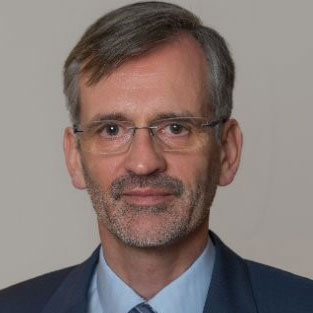 |
Dr. Marcus Glaum, Sales Inline Solutions, HELMUT FISCHER GMBH
|
|
|
|
Antti Takaluoma, Senior Specialist, OFFCODE OY |
|
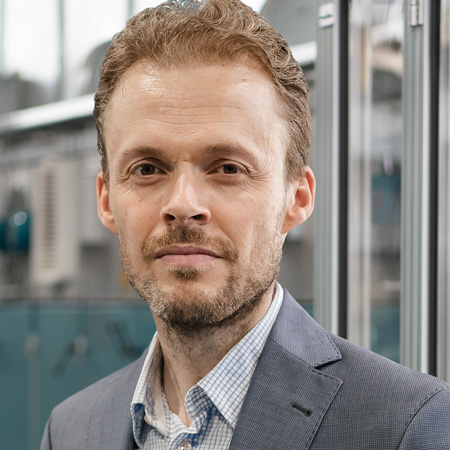 |
Harmen Rooms, Manager R&D, COATEMA COATING MACHINERY GMBH
|
|
|
|
Stefan Weigl, Development positive displacement pumps, NETZSCH PUMPEN & SYSTEME GMBH 2008: Graduation in Mechanical Engineering at the OTH Regensburg (Dipl.-Ing FH)2009 - 2017: Development of rotary lobe pumps at NETZSCH Pumps & Systems GmbH
Since 2017: Head of the Positive Displacement Pump Development Team at NETZSCH Pumps & Systems GmbH
|
|
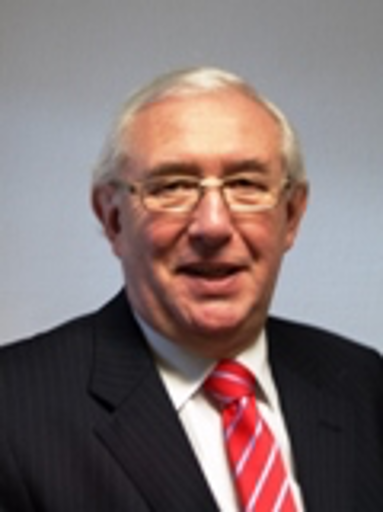 |
Friedel H. Schwartz 1989 Foundation of MTS and cooperation with Sequip |
|
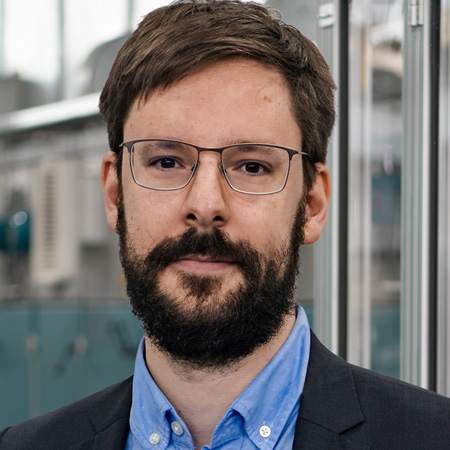 |
Thomas Exlager, R&D Manager, COATEMA COATING MACHINERY GMBH Thomas Exlager studied Nano-Engineering at the University of Duisburg-Essen with his Bachelor in 2014 and Master in 2017. During his studies he focused on optical and electrical characterization methods of Nanomaterials. In 2017 he joined Coatema as R&D Project Manager, coordinating national and European funded projects related to upscaling of roll-to-roll and roll-to-sheet processes for sustainable packaging, battery applications and nanoimprint lithography. In 2020 Thomas changed his role in Coatema to that of a junior scientist, focusing on coating, drying, and structuring processes for thin and thick film applications as well as mathematical process modeling. |
|
|
|
Kira Stephan, R&D Project Manager, COATEMA COATING MACHINERY GMBH
Kira Stephan studied Textile Technology at the „Hochschule Niederrhein” University of Applied Sciences in Mönchengladbach. After a practical semester at Coatema in 2020 she did her bachelor thesis with focus on printed electronics onto textiles in 2021. After that she joined Coatema as R&D Project Manager coordinating national and European funded projects related to upscaling of roll-to-roll and roll-to-sheet processes for different subjects like sustainable packaging, battery and smart textiles. In almost three years now, she has gained a high expertise in process planning, development and practical implementation of various printing and coating methods as well as laminating. |
|
 |
Julian Koc-Richter, R&D Project Manager, COATEMA COATING MACHINERY GMBH Julian Koc-Richter studied Chemistry at the Ruhr-University Bochum and received his Ph.D. in 2019. During his studies he focused on the development and characterization of ultralow fouling polymer coatings for medical and marine applications. In 2020 he joined Coatema as R&D Project Manager and coordinates national and European funded projects related to roll-to-roll and roll-to-sheet processes for organic electronic devices, sustainable packaging and battery applications. |
Abstrakt
| Thomas Kolbusch | New developments in coating, printing and laminating |
|
| Dr. Roman Keding |
New technologies in fuel cells The talk will be on working principles of PEM fuel cells and production research at Fraunhofer ISE, where indirect CCM technologies with flatbed screen printing of catalyst inks are in focus. In addition, ongoing research on rotary screen printing and slot-die processing is demonstrated.
|
|
| Delil Demir |
Laser drying of battery electrodes
|
|
| Klaus Hamacher |
Process control – Proactive error prevention strategy for web-material production processes
Process control is fundamental in web-based production processes. This requires not only the use of suitable sensor technology, but also an intelligent networking of inline quality assurance systems with predictive control principles to prevent quality deviations before they occur.
|
|
| Johannes Schuler |
Measurement solutions for electrodes and fuel cell components
|
|
| Werner Volk |
MEA production equipment OPTIMA is known as a well-established machine builder for the packaging industry. Werner will do a short introduction of the company and their traditional products, markets and technologies, to show the starting point of this new venture. Optima will explain the areas of the technology transfer and were these technologies are applied to in the fuel cell manufacturing process. Challenges of the fuel cell production i.e. tolerances, materials etc. will be highlighted and suitable solutions already applied in the packaging industry will be shown. It will be explain for which of the production steps and for which speeds Optima can provide suitable machines.
|
|
| Jürgen Kreis |
Process optimization enabled by Digital Twins
|
|
| Dr. Marcus Glaum |
In-line Monitoring of the Platinum Content for Fuel Cells Membranes with XRF
|
|
| Antti Takaluoma |
Intelligent automation-cloud communication enables evolving production services
Here we discuss the option where the production system has open communication interfaces.
|
|
| Harmen Rooms |
Overview of Coatema R&D projects
|
|
| Stefan Weigl |
Sustainable pumps for battery production Progressing Cavity pumps are commonly used for coating applications. Demanding requirements can be seen in battery production especially for slot die coating. NETZSCH is the supplier for highly sophisticated and sustainable positive displacement pumps to ensure continuous high process quality.
|
|
| Friedel H. Schwartz |
Characterization of slurry and inks – Particle analytics under process conditions
|
20. Symposium im Jahr 2021
Programm
Program
Wednesday, September 8th, 2021
| 10.00 am – 10.25 am |
Welcome COATEMA COATING MACHINERY GMBH, Thomas Kolbusch / Director Sales, Marketing, Technology, VP |
|
| 10.25 am – 10.50 am |
Spatial ALD: from Lab to Fab |
|
| 10.50 am – 11.15 am |
NIR use in renewable technologies |
|
| 11.15 am – 11.35 am |
Live streaming: Fuel cell ink coating at Coatema R&D centre |
|
| 11.35 am – 11.45 am | Coffee break | |
| 11.45 am – 12.10 pm |
New era of web tension PROFILE monitoring in coating lines |
|
| 12.10 pm – 12.35 pm |
Flexographic printing for technology markets and converting |
|
| 12.35 pm – 1.00 pm |
HyFab – PEM FC MEA production research at Fraunhofer ISE |
|
| 1.00 pm – 1.30 pm | Panel discussion | |
| 1.30 pm – 1.50 pm | Lunch break | |
| 1.50 pm – 2.15 pm |
Coatema Industry 4.0 solutions |
|
| 2.15 pm – 2.35 pm |
Live streaming: Slot die coating trials at Coatema R&D centre |
|
| 2.35 pm – 3.00 pm |
Industry 4.0 – Artificial intelligence for control of coating processes |
|
| 3.00 pm – 3.25 pm |
Drying technologies |
|
| 3.25 pm – 3.50 pm | Smart Glazing TESA SE GERMANY, Dr. Daniel Klier / Lab Manager R&D Technology Center |
|
| 3.50 pm – 4.10 pm |
Live streaming: Registration trials at Coatema R&D centre |
|
| 4.10 pm – 4.35 pm |
Pushing the boundaries of registration alignment using IoT and data analysis |
|
| 4.35 pm – 4.50 pm | Panel discussion | |
| 4.50 pm – 5.10 pm | Closing Remarks / Q&A Thomas Kolbusch / Director Sales, Marketing, Technology, VP and all |
Sprecher
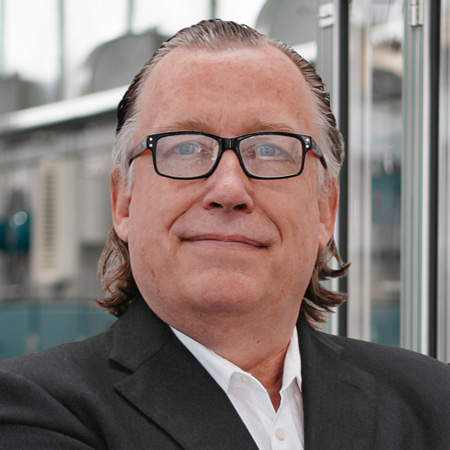 |
Thomas Kolbusch, Vice President, Coatema Coating Machinery GmbH Thomas Kolbusch is Vice President of Coatema Coating Machinery GmbH, an equipment manufacturing company for coating, printing and laminating solutions located in Dormagen, Germany. He is member of the board of the OE-A (Organic Electronic Association) in Germany, a global association for printed electronics. He serves in the advisory board of Fraunhofer ITA institute. He served as member of the board of COPT.NRW, a local association in Germany, as well as exhibition chair of the LOPEC in Munich for five years. Thomas is active in the field of fuel cells, batteries, printed electronics, photovoltaics and medical applications. He organizes the international Coatema Coating Symposium for over 19 years and represents Coatema in a number of public funded German and European projects.Thomas Kolbusch studied Business Economics at the Niederrhein University of Applied Sciences and got his degree as business economist in 1997. He started his career at 3M, Germany. Since 1999 he is working for Coatema Coating Machinery in different positions. |
|
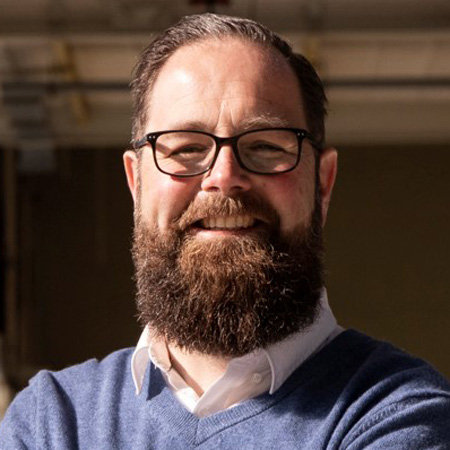 |
Erik Kremers, CTO / System Architect After studying Mechatronics in 1997 Erik became involved in various High Tech Systemprojects in the semiconductor market and industrial printing developments. Here hegained a lot of experience with high accuracy positioning systems and fast industrialrobots. In 2012 Erik switched as a system architect to SoLayTec. In addition to thetechnical challenges as CTO, he is gradually more and more involved with organizationaland business challenges, which has led to the establishment of SALD. |
|
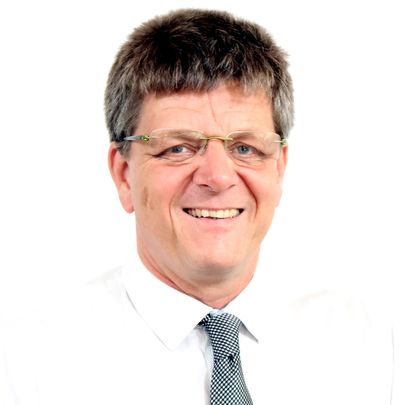 |
Gunther Ackermann
|
|
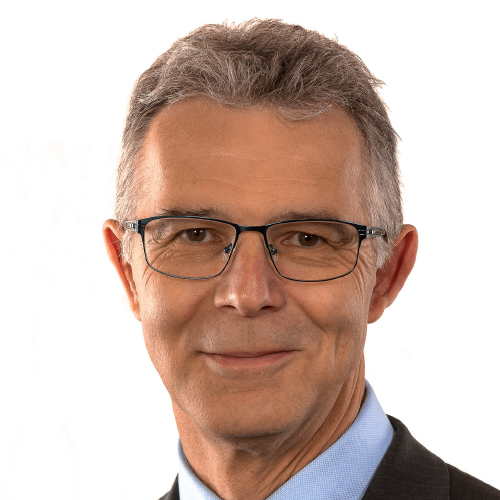 |
Jörg Inhelder, CEO Born November 1960 in Zürich |
|
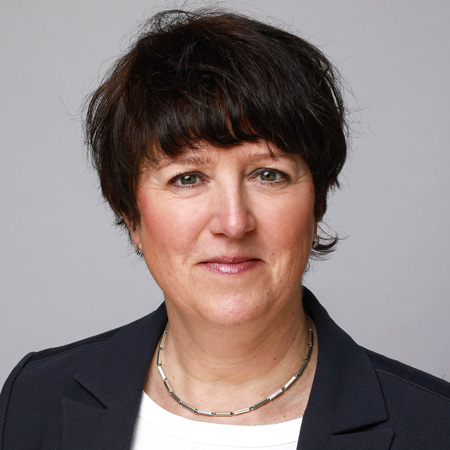 |
Andrea Glawe, Regional Sales Director Asia-Pacific Mrs. Andrea Glawe graduated in 1992 with the Master degree for „Technical textiles and process engineering“ at the Technical University of Chemnitz. She started her career as scientific assistant and project for the Textile Research Institute Thüringen-Vogtland e.V. Greiz between and worked there until 2001. From 2001 to 2011 she worked as Deputy Sales Director with responsibility for technical sales and project management at Coatema Coating Machinery GmbH in Dormagen. Between 2011 and 2012 she took her responsibility as R&D leader DRYTEC GmbH & Co KG in Norderstedt. Between February 2012 and September 2015 Andrea Glawe worked as Director R&D for all R&D activities of the KROENERT group in Hamburg and was responsible for Business Development. Since October 2015 she is responsible as Regional Sales Director for the Asian / Pacific market at KROENERT. |
|
 |
Linda Ney, Dipl.-Ing. Process Integration: Structuring and Metallization, Production Technology: Structuring and Metallization (PSM)
Linda Ney received her diploma in the field of renewable energy systems from the technical university of Dresden. Since 2017 she works at Fraunhofer ISE, focusing on the optimization of screens for solar cell manufacturing. In 2019 she started her PhD about the development of industry-related production processes for PEM-fuel cells, as well as evaluating the composition and rheology of catalyst inks and pastes.
|
|
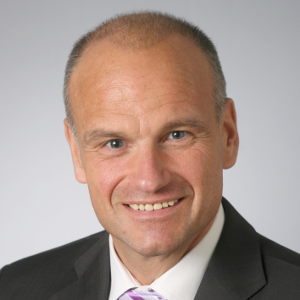 |
Dr. Jürgen Kreis With degrees in electrical engineering and industrial engineering, Juergen has more than 25 years of experience managing business units and companies for complex technology solutions. He has a broad technical understanding and resilient networks in semiconductors, electrical and optical metrology, machine vision, computer science, AI, nano-materials, and other areas. With his own consulting company MARU International Business Consulting he has been working as a consultant for medium-sized companies since 2010. Addressed topics include the development of international sales organizations (esp. for Asian and NAFTA markets), M&A projects, identification of new technologies and suppliers, restructuring and intercultural competence. Since spring 2021, he is supporting Arendar IT-Security GmbH, responsible for sales and marketing as well as business development. |
|
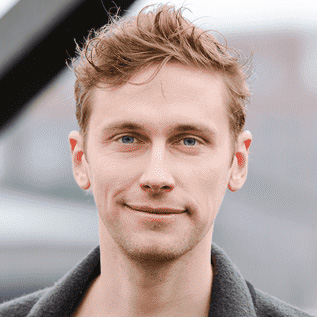 |
Michael Welsch, CEO Michael Welsch, is co-founder, CEO and head of AI at PANDA. After his mechanical engineering degrees, he worked in the automotive sector in the areas of development, failure analysis and process optimization and moved from there into research. In 2016, he started developing a new machine learning approach for monitoring and analyzing production processes, which led eventually to the spin-off of PANDA GmbH in 2018. PANDA GmbH specializes in the integration of AI in industrial manufacturing.
|
|
 |
Thomas Exlager, R&D Manager
|
|
|
Dr. Daniel Klier
|
||
 |
Harmen Rooms, Manager R&D
|
Abstrakt
|
Erik Kremers |
Spatial ALD from Lab to Fab In all growth markets, maximum throughput at the lowest possible costs is essential for success! SALD has developed a unique technology that makes this possible, which is protected by several patents. This technology has been incorporated into a compact machine that can be used for research as well as for small-scale production. It does not matter which material is involved: battery electrode, solar cell, OLED or foil. Moreover, SALD is the only company in the world that has the expertise to subsequently quickly and reliably upscale the Spatial ALD technology to high volume production.
|
|
| Gunther Ackermann |
|
|
| Jörg Inhelder |
New era of web tension PROFILE monitoring in coating lines Measurement of tension in web materials is well known since decades. The development focus was on precision of the loadcells and amplifiers with higher resolution, shorter cycle times and communication interfaces. State of the art is one loadcell on each side of an idler roller. Evaluation in the electronic unit can be sum / average of both signals or also independent evaluation of left/right signals. This allows an accurate measurement of the (overall) tension in a web. But it does not give any information about the lateral distribution of tension across the web. Although very often a web material does not have the same properties across the web (humidity in the material, thickness = gauge etc). With production processes requiring tighter and tighter tolerances this information is no longer sufficient. Especially with wider webs one needs to ensure that the material properties are the same all over the web width. This can be measured by a multitude of loadcells across the web. With such a measurement (monitoring) device it is possible to do a real-time analysis of the tension profile / distribution across the web. You can also detect loose edges, one-side tension concentration, repeating patterns over time / length. This measurement is the base for improving previous (upstream) processes and in addition it allows the qualification of different rolls according to their consistency of tension across the web. The operator can influence the process based on the measurements (web guiding, banana rollers etc) and also document the results through standard interfaces. This new system, the FMS-segFORCE introduces a new era of web tension profile monitoring.
|
|
| Andrea Glawe |
Flexo graphic printing for technology markets and converting Flexibility and challenging solutions are required for coating lines. Printing processes are often integrated in converting lines to give added value to the machine. Logo print in silicone release liner coating lines is a standard solution and even pattern silicone application is realized within fast running coating lines. And flexo printing processes are used in challenging applications too such as design application for battery electrodes and even printed electronics applications. KROENERT will give with the presentation an overview about flexo graphic printing technology and application samples for high-speed converting machines but also for high-end solutions like printed electronics.
|
|
| Linda Ney |
HyFab PEM fuel cell MEA production research at ISE Today’s PEM fuel cell catalyst production research addresses the challenges of upscaling and optimizing the fabrication process, which includes increasing throughput rates while maintaining quality demands. Within the project HyFab we are addressing these challenges and establish production related competences in the field of hydrogen technologies together with the Center for Solar Energy and Hydrogen Research Baden-Württemberg (ZSW). At Fraunhofer ISE, we are investigating the whole production line coming from the catalyst ink, applying flatbed screen printing and the transfer process to manufacture membrane electrode assemblies. Different ex-situ quality control measurements are shown to evaluate correlations of coated catalyst layer and catalyst ink properties. Finally, the fabricated fuel cells are characterized electrochemically during operation.
|
|
|
Dr. Jürgen Kreis
|
||
| Michael Welsch | ||
| Thomas Exlager |
Drying Technologies Industrial drying processes are generally driven empirically and finding the right drying conditions can be resource and time consuming. A general reduction in cost can be accomplished by understanding the fundamentals of heat and mass transfer to model the drying process and find a suiting starting point for empirical trials. Furthermore, general benchmarking of different drying methods (optical, convective, …) can be estimated through process modelling. This talk will cover the fundamentals and the application of high-performance convection drying and the advantages and disadvantages of optical drying methods in comparison. In addition, typical drying defects and their origin will be discussed as well as the advantages of typical solvents in ink formulation regarding the drying process.
|
|
|
Dr. Daniel Klier
|
||
| Harmen Rooms |
|
FP22 – Registration Offcode / VTT and data analysis (Brunel) In the industry of printed electronics alignment of the printed structures is a mandatory aspect. The goal is to achieve registration alignment of 10 micrometer or better in the coming years. For more than 10 years, Coatema is working together with Offcode Oy. as a strategic partner to develop a registration system that meets the needs of the printed electronics industry. As part of several funded projects, such as REGAC, Smartonics, Supersmart and OLED Solar, Coatema has been working to improve the alignment accuracy by improving its machinery design. Now with advances in data collection of different conditions such as temperature, humidity and vibration, data analysis can be performed and will be the used to understand the error causes even better, thereby moving toward the needed accuracy for e.g. printed transistors.
|
19. Symposium im Jahr 2020
Programm
Program
Wednesday, November 4th, 2020
| 10.00 am – 10.25 am |
Welcome COATEMA COATING MACHINERY GMBH, Thomas Kolbusch – Vice President |
|
| 10.25 am – 10.50 am |
Intermittent slot die coating of low viscous liquids COATEMA COATING MACHINERY GMBH GERMANY, Dr. Klaus-Peter Crone |
|
| 10.50 am – 11.15 am | High speed inkjet printing – A system integration perspective NTS EINDHOVEN NETHERLANDS, Phd Shahzad Khan |
|
| 11.15 am – 11.25 am | Video: Process Part Easycoater | |
| 11.25 am – 11.35 am | Coffee break | |
| 11.35 am – 12.00 pm |
Spatial Atomic Layer Deposition, and its application in Li-ion Batteries HOLST CENTRE / TNO NETHERLANDS, PhD, MBA Sandeep Unnikrishnan |
|
| 12.00 pm – 12.25 pm |
Nanocellulose as sustainable packaging substrates COATEMA COATING MACHINERY GMBH GERMANY, Dr. Dimitrios Kourkoulos |
|
| 12.25 pm – 12.50 pm |
Wearable patches for vital sign monitoring HOLST CENTRE / TNO NETHERLANDS, Ing. Milan Saalmink |
|
| 12.50 pm – 1.20 pm | Panel discussion | |
| 1.20 pm – 1.23 pm | Video: Process Part Smartcoater | |
| 1.25 pm – 1.50 pm | Lunch break | |
| 1.50 pm – 2.15 pm | FF2S – Intelligent packaging FRAUNHOFER FEP GERMANY, Dr. John Fahlteich |
|
| 2.15 pm – 2.40 pm | Fuel cell converting technologies OPTIMA PACKAGING GERMANY, Werner Volk |
|
| 2.40 pm – 3.05 pm | Integrated functions from the line – smart composites manufactured continuously RWTH AACHEN GERMANY, Prof. Thomas Gries |
|
| 3.05 pm – 3.35 pm | Panel discussion | |
| 3.35 am – 3.38 pm | Video: Process Part Click&Coat | |
| 3.40 pm – 4.05 pm | Enabling intelligence in nano-manufacturing of organic & printed electronics by in-line metrology and control ARISTOTELE UNIVERSITY OF THESSALONIKI, Asst. Prof. Argiris Laskarakis |
|
| 4.05 pm – 4.30 pm | New drying technologies DRYTEC NORDERSTEDT GERMANY, Dipl.-Ing. Nikolaus Gröhl |
|
| 4.30 pm – 4.45 pm | Closing Remarks / Q&A Thomas Kolbusch / all |
Sprecher
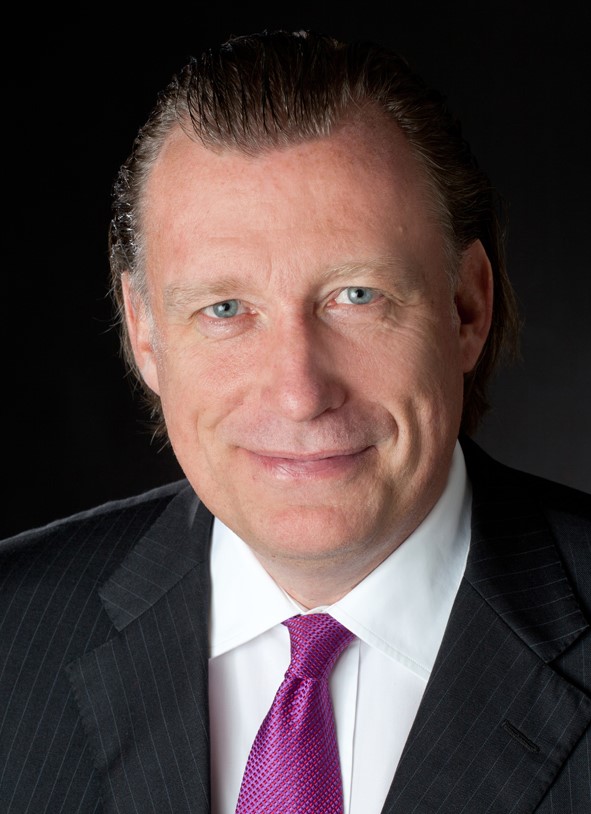 |
Thomas Kolbusch, Vice President, Coatema Coating Machinery GmbH Thomas Kolbusch is Vice President of Coatema Coating Machinery GmbH, an equipment manufacturing company for coating, printing and laminating solutions located in Dormagen, Germany. He is member of the board of the OE-A (Organic Electronic Association) in Germany, a global association for printed electronics. He serves in the advisory board of Fraunhofer ITA institute. He served as member of the board of COPT.NRW, a local association in Germany, as well as exhibition chair of the LOPEC in Munich for five years. Thomas is active in the field of fuel cells, batteries, printed electronics, photovoltaics and medical applications. He organizes the international Coatema Coating Symposium for over 19 years and represents Coatema in a number of public funded German and European projects.Thomas Kolbusch studied Business Economics at the Niederrhein University of Applied Sciences and got his degree as business economist in 1997. He started his career at 3M, Germany. Since 1999 he is working for Coatema Coating Machinery in different positions. |
||||
|
|
Dr. Klaus Peter Crone Klaus Peter Crone received his PhD in physics and astronomy from University Bonn in 1984. As head of the divisions „process analysis 2” at Bayer AG and „measurement and analysis” at Agfaphoto GmbH he developed customized coating and analysis techniques for the photographic and pharmaceutical industry. Since 2009 as head of R&D at Coatema he focused on various coating and drying techniques especially slot die coating. Retired in 2015 he now works at Coatema for R&D and special tasks. |
||||
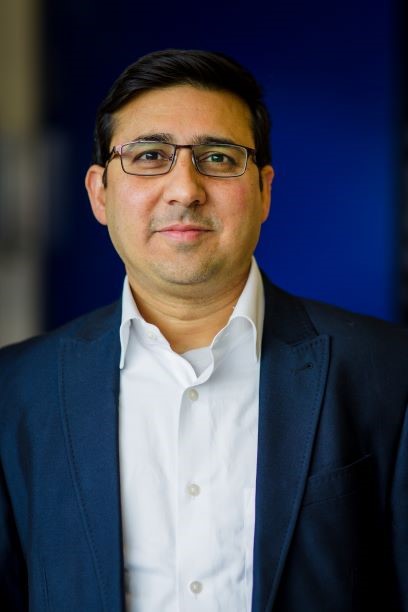 |
Dr. Shahzad Khan Shahzad Khan graduated with BSc in Physics, MSc in Electronics and PhD in Mechatronics Engineering in 1999, 2001 and 2008 respectively and has more than 18 years of experience in high tech industries (semiconductor, healthcare, automotive, digital printing). |
||||
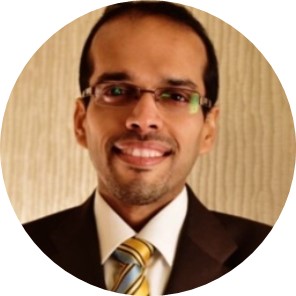 |
Dr. Sandeep Unnikrishnan Dr. Sandeep Unnikrishnan is the R&D Program Manager for next generation battery technology development. He has an engineering background on manufacturing technology, and later did his PhD on micro structured fuel cells. He has more than 17 years’ experience in technology development for multitude of devices, including organic electronics, fuel-cells and batteries. He has filed over 20 patents, authored 17 publications in peer reviewed journals, and several more conference publications. In 2016, he complemented his technical expertise with business knowhow by completing an executive MBA. |
||||
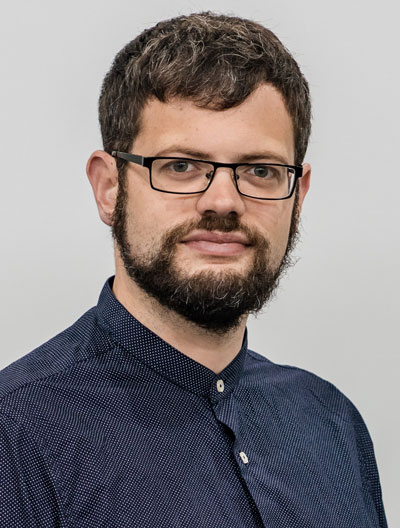 |
Dr. Dimitrios Kourkoulos Dr. Dimitrios Kourkoulos studied Chemistry at the University of Cologne and received his diploma in 2006. During his Ph.D.-studies that he completed in 2015 he focused on the characterisation and optimization of solution processed thin film devices. He worked as a Project & Technology Manager at the COPT Centre, a German research and technology transfer institute. During this time, he coordinated and participated in several national founded projects with a focus on printed electronics and the analysis of surface and coating defects. In 2019 he joined Coatema as R&D Project Manager and coordinates national and European funded projects related to upscaling of roll-to-roll and roll-to-sheet processes for sustainable packaging, battery applications and nanoimprint lithography. |
||||
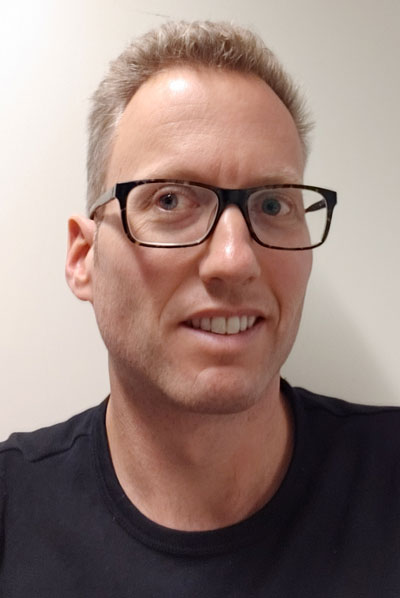 |
Ing. Milan Saalmink Milan Saalmink received his BSc in Polymer Chemistry in 2000 at the Fontys University of Applied Science Venlo, the Netherlands. After finishing his internship in 2000, he joined Philips Research to work on polymer-based thin films. Application of these films were in LCD displays, multilayer data storage, microcontact printing and a number of projects on sensor applications. In 2007, he joined TNO as a process engineer on integration technologies. Since 2015 he is working as a senior process engineer on hybrid printed electronics, in the field of wearable electronics. Within the wearable electronics team, technologies and applications for medical patches and integration of electronics into garment are developed.
|
||||
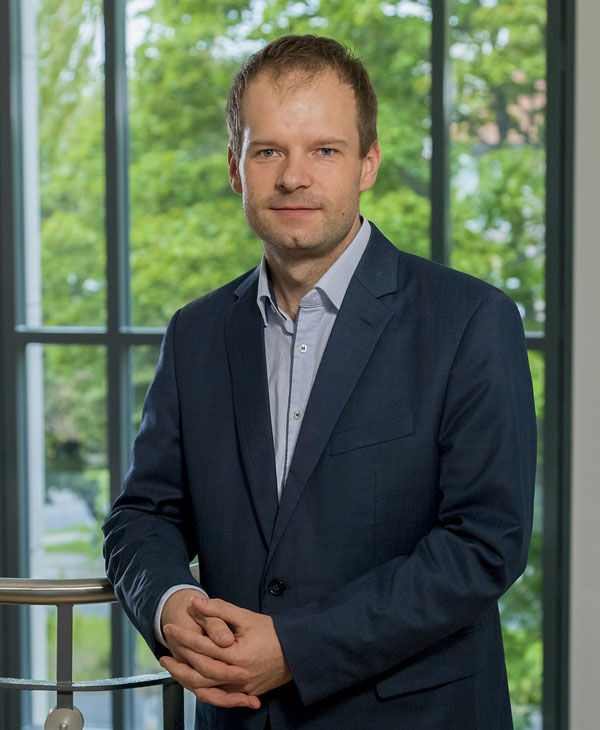 |
Dr. John Fahlteich Dr. John Fahlteich (male) was born 1981 and graduated from the University of Leipzig with a diploma in physics in 2005. In 2010, he earned a PhD from the Technical University of Chemnitz with a thesis about vacuum deposited permeation barrier layers. |
||||
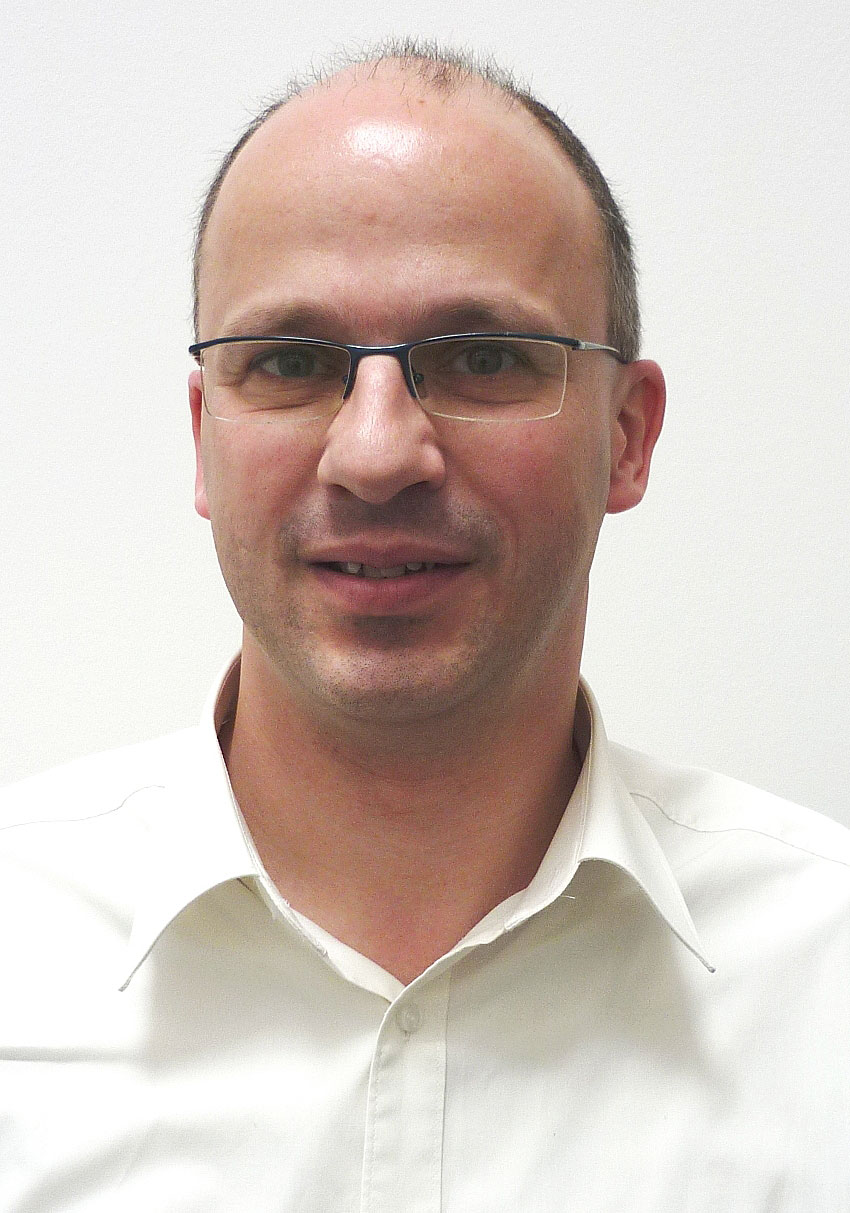 |
Werner Volk Education: Diplom Ingenieur (FH) Maschinenbau, MBA More than 20 years of experience in packaging machines. Looking for new applications and technology transfer from packing to manufacturing and stacking of fuel cells etc.
|
||||
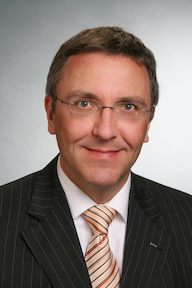 |
Prof. Thomas Gries Thomas Gries, born in Cologne, Germany, in 1964, studied at the RWTH Aachen University, Germany. He holds a diploma degree in mechanical engineering and economics and a doctorate in mechanical engineering. From 1995 to 2001, he worked at Lurgi Zimmer AG, Frankfurt am Main, Germany, at the Department of Technologies for Fibres&Textiles in leading positions. From April 2001 onwards, he is Director of the Institut für Textiltechnik (ITA) of RWTH Aachen University. The honoris causa Professorship of Lomonossow University is the most distinguished scientific award of Russia given for his achievement of tailored reinforcements. The ITA was established in 1934 and is one of the world’s leading research establishments. Its fields of research consist in man-made fibre technology, staple fibre processing, fabric production, technical textiles & composites, medical textiles & biomaterials as well as in smart textiles & joining technologies. With a budget of 15 million € and a staff consisting of 110 scientists, 65 technicians and administration staff and more than 200 graduate researchers ITA is leading in the digitalization of the textile sector.
Thomas Gries presently is
|
||||
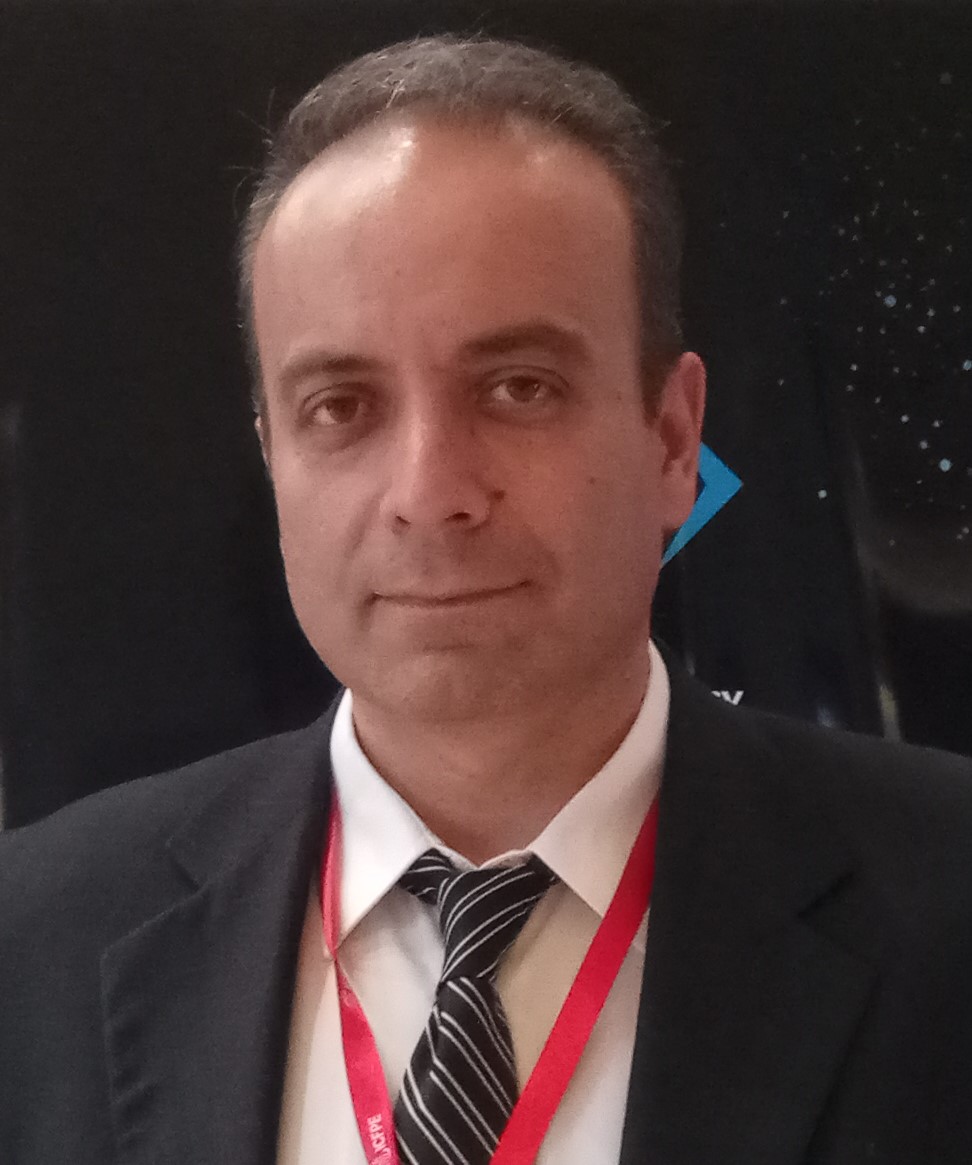 |
Asst. Prof. Argiris Laskarakis Head of the Organic Electronics Group of Nanotechnology Lab LTFN Asst. Prof. A. Laskarakis has graduated from the Physics Department of the Aristotle University of Thessaloniki, Greece. He finalized his PhD at 2005, and his Thesis is focused on the investigation of the optical properties of inorganic and organic nanostructured materials for advanced applications. He is specialist in Flexible Organic & Printed Electronics nanomaterials (organic semiconductors, transparent electrodes, barriers for encapsulation) and devices (e.g. organic photovoltaics, organic thin film transistors) by vacuum and printing methods. Also, he is expert in optical metrology of inorganic, organic and hybrid nanostructured materials by Optical Spectroscopy methods as well as on the computational modelling of optical properties of nanomaterials and thin films.
|
||||
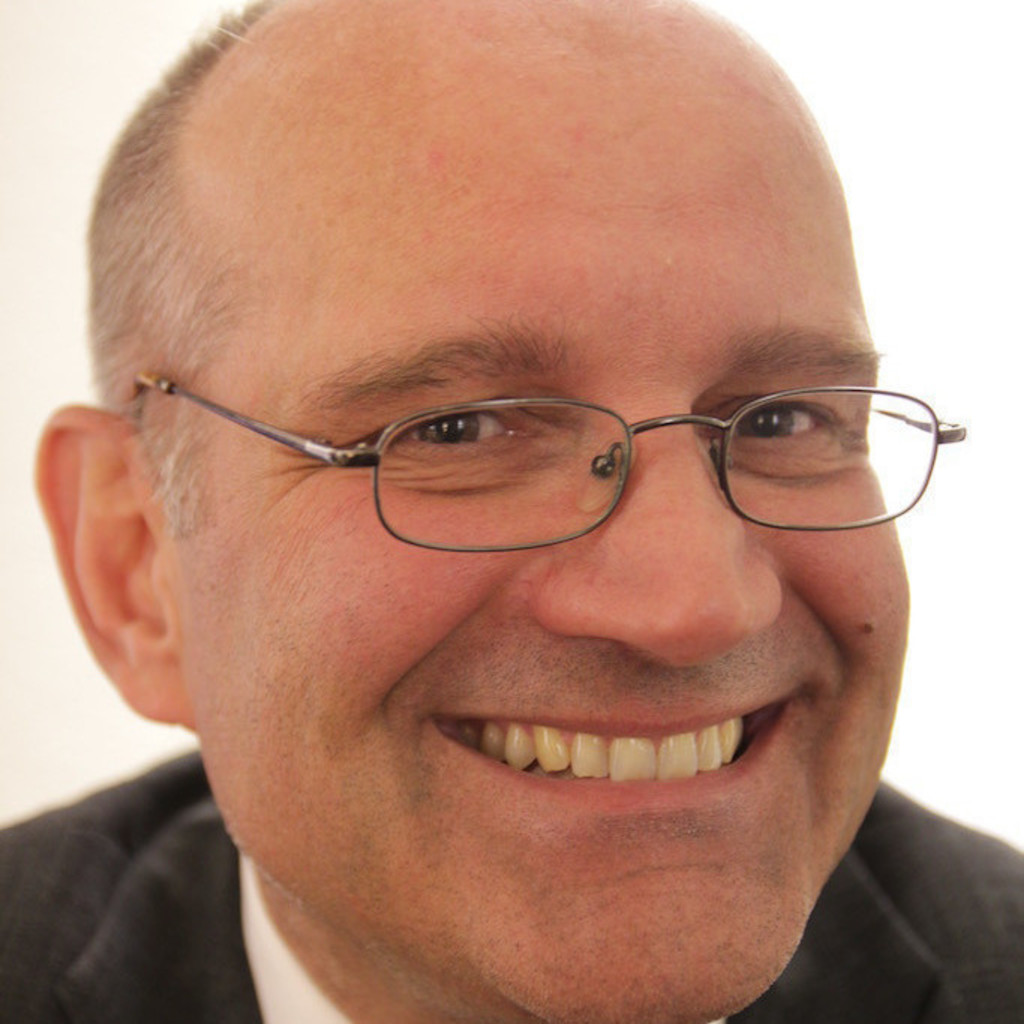 |
|
Abstrakt
| Dr. Klaus Peter Crone | Intermittent slot die coating of low viscous liquids
Slot dies originally have been invented for uniform, endless, full area coatings. Their dedicated advantages to be a premetered closed system are more and more requested as well for intermittent coatings, e.g. in the battery industry. The main problem of intermittent slot die coating, namely the successive fast start and stop of the coating process, has meanwhile been solved quite satisfyingly for rather high viscous slurries. For low viscous liquids there are still problems to achieve well defined coating edges. A new method is presented, still being in development, to overcome such issues.
|
|
| Dr. Shahzad Khan |
In recent years, several markets (e.g. coating) are adopting integrated digital technologies to print functional layer which is pushing Inkjet technology to achieve high speed (> 100 meter/min) with drop placement accuracies (+/- 10 micrometers). This induces challenges (amongst others) with respect to vibrations of mechanical modules (print bar), high flow rate in the ink delivery system and power supplies requirements for fast print head activation. In this presentation, we elaborate the challenges along with the its effects and propose a solution space from a system integration perspective to achieve high speed printing with desired accuracy. |
|
| Dr. Sandeep Unnikrishnan | Spatial Atomic Layer Deposition, and its application in Li-ion Batterie M. Ameen, L. Haverkate, F. Grob, B. Anothumakkool, F. Roozeboom, and S. Unnikrishnan TNO-Holst Centre, High Tech Campus 31, 5656 AE Eindhoven, The Netherlands
1. S. Myung et al., ACS Energy Lett. 2, 196–223 (2017). |
|
| Dr. Dimitrios Kourkoulos |
The development of sustainable packaging materials with lower environmental impact is an urgent need of our society. Although significant improvements have been made, it is still challenging to achieve a trade-off between eco-friendliness and both, low production costs and sufficient packaging performance. One promising material that might succeed in creating this balance is nanocellulose - a nature-derived and renewable nanomaterial that shows excellent mechanical and barrier properties. However, using nanocellulose it is quite challenging to obtain homogeneous defect free layers. The unexceptionally high viscosity and thixotropic behaviour of nanocellulose based solutions makes it difficult to deposit this material with standard coating methods. Furthermore, another crucial aspect is the high solvent content of the typical nanocellulose solution (between 99 and 95%), causing very high demands for the drying process. We will present our results regarding process development for this demanding material. Using innovative drying technology and optimized coating methods we were able to implement the fabrication of nanocellulose coated paperboard at pilot scale. |
|
| Ing. Milan Saalmink |
Printed electronics for wearable applications This presentation will explain the work performed at Holst Centre in the field of printed electronics for wearable applications. Using screen printing of stretchable pastes onto stretchable substrates, prototypes for medical and garment applications are being developed. For this, a good insight in material performance is needed, ranging from stretchability of the paste and substrate to e.g. performance of the electrodes to measure heartbeat and ECG signals. Together with our partners and customers, we work together to further improve these mat gain more insight in current materials and develop new applications. |
|
| Dr. John Fahlteich |
FlexFunction2Sustain: An Open Innovation Ecosystem for Sustainable Nano-functionalized Plastic and Paper Surfaces Plastic and paper based materials are used in a wide range of daily life products. Their applications represent well established multi-billion Euro markets (e.g. packaging, furniture surfaces, membrane-based filter systems, medical products etc.). New business opportunities arise from replacing glass and metal by nano-functionalized plastic or paper surfaces in many products. FlexFunction2Sustain is the first European Initiative to support Plastics and Paper Processing Industry in overcoming challenges of improving environmental footprint and entering the digital age while offering new material functionalities through a sustainable Open Innovation Test Bed (OITB). FlexFunction2Sustain connects complementary pilot lines to a set of 9 connected lab-2-fab facilities covering all major nano-surface processing techniques for (flexible) plastic and paper surfaces and membranes. This presentation will discuss technical challenges and solutions for sustainable plastic products based on bio-degradable or fully recyclable polymers. Considerations for a sustainable business model of an open innovation ecosystems will be presented as a basement to support innovative SMEs and industries by drastically reducing time and effort for proceeding through the innovation chain from a product idea to market success. |
|
| Werner Volk | ||
| Prof. Thomas Gries |
Integrated functions from the line – smart composites manufactured continuously Functional integration is one of the main aspects of future composite production. The full benefit of multilaminar materials can be achieved by integrating functions like structural health monitoring, conductive properties, and heating possibility. State of the art is time- and cost consuming application of electronic components for functionalisation. New technological approaches developed at ITA allows inline printing of electronic components from roll to roll in combination with tailored impregnation. |
|
| Asst. Prof. Argiris Laskarakis |
Enabling Intelligence in Nano-manufacturing of Organic & Printed Electronics by In-Line Metrology and Control The reliable manufacturing of flexible Organic Electronic devices by large scale Roll-to-Roll printing processes is largely dependent on the homogeneous and reproducible fabrication of printed nanomaterials with stable functional properties (optical, electrical, structural) and interface quality over large areas. In this presentation, we report our results for the reliable manufacturing of printed nanomaterials and devices for Organic and Printed Electronic devices, based on the implementation of intelligent in-line optical metrology tools. Moreover, we report on the development of intelligent modelling procedures that can extract from single very fast optical in-line measurements significant information such as film quality, morphology, degradation traces and film thickness. |
|
| DRYTEC |
New drying technologies The company Drytec is actively developing dryer technologies. In our präsentation we would like to show you our dryer types and the individual advantages. The nozzle has a great influence on the drying behaviour of different products. Here there are different performance data of the nozzles. Here, too, we would like to present them to you and show you the possible applications. In this area, we have developed a new overhead technology.
|
|
13. Symposium im Jahr 2012
"Introduction"
Thomas Kolbusch, Coatema Coating Machinery GmbH
"Materials for Lightweight Construction - especially for Aircraft Applications"
Sebastian Steffen, Fraunhofer PYCO
"PrintoCent Factory - business development centre for Printed Intelligence"
Mikko Paakkolanvaara, VTT, Finland
"Spectral Reflectance and Transmittance: Process Monitoring with lab-like Certainty"
Chris Hellwig, Carl Zeiss Microscopy GmbH
"Roll-to-Roll encapsulation of OLED devices under inert conditions"
Dr Stefan Mogck. Fraunhofer IPMS
"Heraeus solutions for printed electronics"
Jürgen Weber, Heraeus Noblelight GmbH
"Continous fabrication of flexible electrochromic devices ba means of roll-to-roll coating and lamination - Results of the EU-funded large collaborative project INNOSHADE"
Dr. Uwe Posset, Fraunhofer ISC
"Measuring coating thicknesses in-line for QA and process control"
Dr. Nancy Hecker-Denschlag, omt - optische messtechnik GmbH
12. Symposium im Jahr 2011
"Introduction"
Thomas Kolbusch, Coatema Coating Machinery GmbH
"Materials for Lightweight Construction - especially for Aircraft Applications"
Sebastian Steffen, Fraunhofer PYCO
"100 % Surface inspection in coating applications"
Dr. Rudolf Krampe, ISRA Surface Vision GmbH
"Metrology Systems for Quality Control and Process Optimization in Film Production"
Hans Örley, Dr. Schenk GmbH
"Low temperature photonic sintering for printed electronics"
Peter Schullerer, Polytec GmbH
"Pump Systems"
Dr. Carsten Damerau, HNP Mikrosysteme GmbH
"Coatema 2011"
Thomas Kolbusch, Coatema Coating Machinery GmbH
"Prepreg Equipment for the future"
Jürgen Hanel, Coatema Coating Machinery GmbH
"New approaches to printed PV"
Christoph Sele, Solar Press
"R2R compatible rapid electrical sintering of conductors"
Ari Alastalo, VTT
"Resin systems for fibre-reinforced composites"
Pavel Timoshkov, VIAM
11. Symposium im Jahr 2010
"Introduction"
Thomas Kolbusch, Coatema Coating Machinery GmbH
"Materials for Lightweight Construction - especially for Aircraft Applications"
Christoph Nowacki, RWTH Aachen -WZL
"Tungsten carbide lip slot-die for high precision coating"
Yusuke Furuya, Mitsubishi Materials Corporation
"Flexible polymer solar cells"
Dr. Birger Zimmermann, Fraunhofer ISE
"Measuring systems for thin film technologies"
Andreas Woerz, Keyence Deutschland GmbH
"Roll-to-roll process line for OLED lighting"
Dr. Stefan Mogck and Christian May, Fraunhofer IPMS
"UV-Systems for roll-to-roll printed electronic applications"
Rolf Müller, IST Metz GmbH
"Coatema 2010"
Thomas Kolbusch, Coatema Coating Machinery GmbH
"Inkjet - one pass roll-to-roll"
Dr. Kay Yeong, Xennia Technology Ltd.
"Narrow web corona treatment and the powerfactor"
Rob Hablewitz, Pillar Technologies
"The Smartcoater - a new R&D tool"
Thomas Kolbusch, Coatema Coating Machinery GmbH
"Surface cleaning of polymer films and other substrates"
Martin Streuli, Shinko Europe AG
10. Symposium im Jahr 2009
"Introduction"
Thomas Kolbusch, Coatema Coating Machinery GmbH
"Organic and Printed Electronics - Chances and Challenges"
Dr. Klaus Hecker, OE-A a working group within VDMA
"Gravure printing and other techniques for fabrication of polymer solar cells"
Dr. Monika Voigt
"InertCoater - Drying and Sintering in Inert Atmosphere for Sophisticated Applications"
Frank Sarnes, Sarnes Ingenieure OHG
"Technical Textiles"
Dr. Rolf-Dieter Hund, Technische Universität Dresden
"The right combination of machinery and transfer substrates for prepreg products"
Andrea Glawe, Coatema Coating Machinery GmbH & Dr. Roland Wilberger, B. Laufenberg GmbH
"Coatema 2009"
Thomas Kolbusch, Coatema Coating Machinery GmbH
"Optical in-line inspection of base material and it´s coatings, with focus on solar application"
Hans Örley, Dr. Schenk GmbH Industriemesstechnik
"Simulation of an industrial belt dryer with regard to the gas phase mass transport"
Prof. Dr.-Ing. Wilhelm Schabel and Philip Scharfer, KIT Karlsruher Institut für Technologie
"High precision lamination of flexible foils"
Irene Kaashoek, TNO Holst Centre
"Conductive films and structures"
Dr. Daniel Rudhardt, Bayer MaterialScience AG
9. Symposium im Jahr 2008
"Introduction"
Thomas Kolbusch, Coatema Coating Machinery GmbH
"OPERA, for the future of organic & large area electronics in Europe"
Ed van de Kienboom, Plastic Electronics Foundation
"Vision inspection on printed flexible circuits and coated surfaces"
Dr. Michel Popovic, IN-CORE Systems
"PEDOT: PSS for Conductive Coatings"
Dr. Timo Meyer-Friedrichsen, HC Starck GmbH
"Printed intelligence: novel applications and process issues"
Jukka Hast, VTT - Technical Research Centre of Finland
"Solarcells Based on Textiles - An Access for The Energy Supply of Microsystems"
Dr. Uwe Möhring, TITV - Textilforschungsinstitut Thüringen-Vogtland e. V.
"Industrial Printing Beyond Color"
Dr. Andreas Willert, Chemnitz University of Technology
"Coatema 2008"
Thomas Kolbusch, Coatema Coating Machinery GmbH
"Textile Preforms for endless fibre reinforced laminates and composites"
Dr. Heike Illing-Günther and Anja Schumann, Sächsisches Textilforschungsinstitut e.V.
"Coating of active layers on high specialized yarns and filaments"
Andrea Glawe, Coatema Coating Machinery GmbH
"New low viscos silicon rubbers for slot die application"
Johann Müller, Wacker-Chemie AG
"Coating of steelplates, a new approach for structures optimized in weight"
Uwe Maurieschat, Fraunhofer Institut für Fertigungstechnik Bremen
8. Symposium im Jahr 2007
"Advanced Coating Technologies for High Volume Fuel Cell Electrodes"
Jürgen Mergel, Forschungszentrum Jülich
"R2R Printing and Coating of Polymers for OLED Lighting"
Ike de Vries, TNO / Institute of Industrial Technology
"Global Solutions for Coating Innovations"
Michael Schuhmann, Clariant International AG
"Coating Windows of Slot Coaters Operating in Their Bead Coating Mode"
Prof. Dr. Durst, FMP Coating AG
"Singular Technology for the Production of Fire Resistant Glazing"
Dr. Valentino Villari, Scheuten Glasgroep
"Nanocoating close to the Market"
Moritz Graf zu Eulenburg, Coatema Coating Machinery GmbH
7. Symposium im Jahr 2006
"Organic Solar Cells at Fraunhofer ISE"
Dr. Michael Niggemann, Fraunhofer Institute
"Organic and Hybrid Solar Cells, technology and market requirements"
Dr. Christoph J. Brabec, Konarka
"DSSC Technology from Roll to Roll Process"
Paul Turney, Renewable Capital / G24 Innovations
"Nanotechnology for Functionalization of Textile Materials"
Torsten Textor, DTNW
"New functions of coating"
Andrea Glawe, COATEMA
"New Coatings on Denim"
Jürgen Hanel, Dystar
"Quality Control System, Qualiscan QMS-10A"
Mathias Wuhlbeck, Mahlo
"Near Infrared (NIR) enhances coating procedure"
Walter Becker, Fachhochschule Niederrhein
6. Symposium im Jahr 2005
"Reach"
Micheal Pöhlig, TVI Association, Frankfurt a.M.
"Transferable coating results in any width"
Johannes P. Zimmer, Zimmer Austria
"Textile Coatings for digital printing materials"
Jör Bärlocher, Rowa AG
"Innovative building materials with Phase Change"
Dr. Barbara Pause, Textile Testing & Innovation LCC
"New Solution for New Markets"
Andrea Glawe, COATEMA
"Environment-friendly coatings based on Nanogate-Technology"
Rolf Danzebrink, Nanogate
"Electronic Textiles"
Karel Spee
"Nanotechnology in use"
Prof. Dr. Michael Stoll, Falk
"Medical devices and pharmaceutical products coated with pressure sensitive adhesives - an overview"
Jürgen Sigg, IVF Hartmann
5. Symposium im Jahr 2004
"The China Threat to World Textile and Apparel Trade oder: Geht dem Drachen die Puste aus"
Hartmut Reetz, TVI-Verband e. V.
"Nanomaterialien in der praktischen Anwendung"
Dr. Nora Kunze, Nano-X GmbH
"Ein Messverfahren zur vollständigen Kontrolle der Flächenmasse von Beschichtungen während der Herstellung"
Gerhard Gärtner, Vacutec Messtechnik GmbH
"UV-Silikonisierung auf Folie und Papier"
Jürgen Pomorin, Degussa/Goldschmidt AG
"Durch Nanotechnologien und Beschichtungstechnologien zu neuen Produkten"
Prof. Dr. Schollmeyer, Deutsches Textilforschungszentrum Nord-West e.V.
"Funktionelle Beschichtung von technischen Textilien mit neuen Beschichtungsrohstoffen"
Gerd Brandner, Ciba Spezialitätenchemie
"Entwicklung einer neuen Anlagen-Technologie zur Thermofixierung von Highdistance-Textilien"
Andrea Glawe, COATEMA & Jörg Eckert, Heraeus Nobelight GmbH
4. Symposium im Jahr 2003
"Der Markt für beschichtete Textilien unter Berücksichtigung der kommenden EU-Stoffpolitik"
Hartmut E. Reetz, TVI-Verband e.V.
"Galvanische und elektrochemische Beschichtung von mit metallisierten Fäden mikrostrukturierten Flächen und deren Anwendung"
Dr. Uwe Möhring, TITV e. V. Greiz
"PU Revolution: die neuen Micro-Emmission Klebestoffe"
Dr. Claudia Meckel-Jonas, Henkel KGAA Düsseldorf
"Entwicklung von Beschichtungsverfahren zur Herstellung dünner Funktionsschichten"
Frank Apsel, ZEBES Wolfen
"Optimale Beschichtungsergebnisse durch präzise Walzentemperierung"
Andrea Glawe, COATEMA & Guido Schulte, Weinreich Industrie-Kühlung GmbH
"Infrarot Trocknung in der Textilveredlung – Grundlagen – Anwendung – Ausblick"
Jörg Eckert, Heraeus Nobelight GmbH
3. Symposium im Jahr 2002
"Die Märkte für beschichtete und laminierte, textile Werkstoffe – aktuelle Situation"
Hartmut E. Reetz, TVI-Verband e.V.
"Folien statt klassischer Lackierung in der Fahrzeugbeschichtung"
Dr. Horst Hintze-Brüning, BASF Coating AG
"Nutzen und Anwendung von spezifischen Faserausrüstungen für Spinnvlies"
Regina Köppe, Zschimmer+Schwarz
"100%ige emmissionsoptimierte Polyurethan-Systeme für die Streichapplikation"
Uwe Siebgens, Stahl Holland bv.
"Hocheffiziente Lufttrockner durch Elektrostatik"
Dr. Helma Abele, ITV Denkendorf
"Aufschmelzen und applizieren konventioneller und nachvernetzender Schmelzklebestoffe"
Christian Schwär, Robatech GmbH
"Der heutige und zukünftige Markt der Hotmelt-Rohstoffe"
Martin Schindler, Jowat Lobers & Frank




